Recent Fire Damage Posts
When Smoke, Water, and Fire Damage Your Everett Home
10/19/2024 (Permalink)
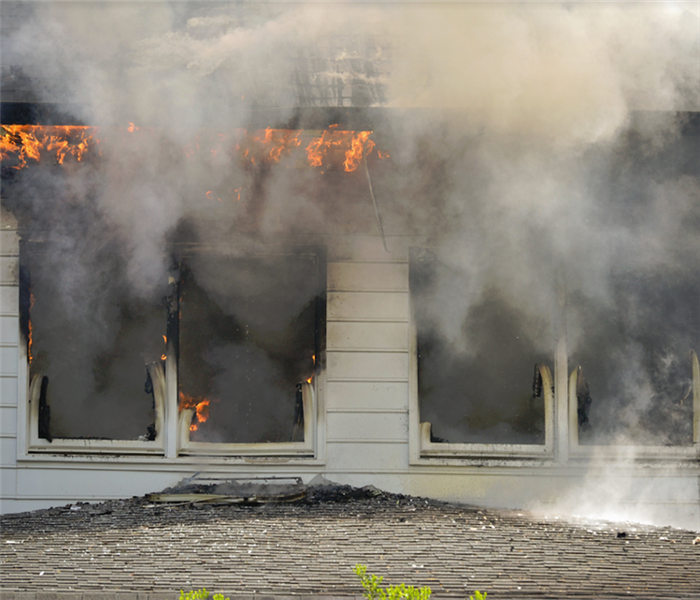 A fire in your home can cause a lot of damage, especially if it's not dealt with properly. Contact SERVPRO 24/7 for certified technicians.
A fire in your home can cause a lot of damage, especially if it's not dealt with properly. Contact SERVPRO 24/7 for certified technicians.
A House Fire Severely Damages Contents & Interior
Fire damage never disappears on its own. When it affects your Everett property, you'll see that it is not only charring and burning that happens. Other changes include water damage and the presence of new and unwanted odors.
The changes related to fire damage in an Everett house are physical and molecular. Charred wood is visible but happens at the molecular level. The wood changes into charcoal. Such changes are permanent.
Here, we will explain how a fire changes things in your home at the molecular level:
Smoke contains gases, solids, and liquids, including some oils. Much of the solid material is so tiny that it's impossible to see the individual particles without a microscope. These pieces are very sharp and capable of causing etching of shiny surfaces within your home. As these particles break down and disintegrate more and more, air currents can lift them into the air, where you and your family smell them as smokey, acrid odors. We clean these deposits up as quickly as possible and run air scrubbers.
When firefighters spray water onto hot, burning things, a lot becomes steam. As the steam cools, it remains in the air as water vapor or condenses on cool surfaces. Moisture can seep into microscopic pores and begin causing secondary water damage, including mold and dry rot. Too much moisture can easily warp wood. SERVPRO® addresses all of these according to IICRC standards.
A fire's heat can melt plastic and other synthetic materials from a short distance. Many toys, kitchenware, and even clothing contain these materials. They also give off toxic gases when heated. We clean up the melted messes and take inventory of these destroyed belongings. We clean the air with air scrubbers and negative pressure set-ups.
Call the experts in fire damage, SERVPRO of Everett / Lake Stevens / Monroe, at their 24-hour number, (360) 243-8313.
After Fire Damage, Trust Us to Secure Your Everett House & More
1/16/2024 (Permalink)
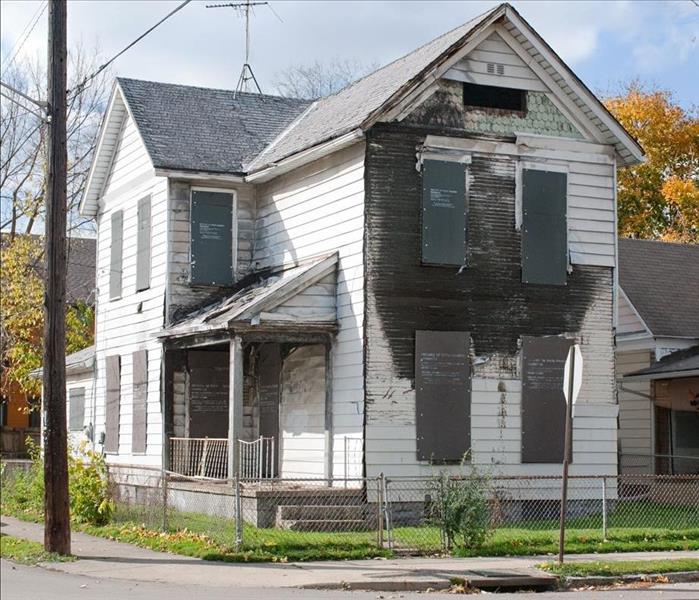 If your Everett home has soot or fire damage, call SERFPRO. We're Faster to any size disaster™.
If your Everett home has soot or fire damage, call SERFPRO. We're Faster to any size disaster™.
Fire Damage in Everett Is Highly Destructive
The ferocity of a house fire can force windows to break, letting flames scorch the exterior of your Everett residence. The entryway doors and frames can also become so warped that you can no longer close them. SERVPRO® handles fire damage and all of your property's problems arising because of it.
Restoring your property by eliminating all traces of fire damage keeps Everett a safe and welcoming community. Making your vulnerable house and its contents inaccessible to unauthorized individuals helps reduce the chance of injuries. Closing off windows and other entry points can also hinder theft and vandalism. You can depend on SERVPRO's skilled teams to manage the entire process of restoring your home, from the beginning to the end.
Here are some ways we take care of your property after a fire:
- Boarding up openings,
- Temporary power, and
- Working with your insurance company.
When the exterior of your home requires new siding and other fixtures, placing heavy-duty boards using sturdy materials and fasteners does not carry the concern of marring your home's exterior appearance. Having these in place allows us to make repairs and install new siding and other components without the risk of damaging new windows. For example, if we need to blast smoke-damaged siding materials, we can do so without harming windows or their frames.
A lack of power might keep your house's interior dark. Our portable generators light everything up for us and power our machines. Once we receive approval, we can reinstall wiring and other electrical system components.
Because we are a neutral third party, a copy of our inventory of lost items and necessary materials to restore your property can help with the claims process.
One of your first steps after fire damage hits your home is to call SERVPRO of Everett / Lake Stevens / Monroe at (360) 243-8313. We can make it "Like it never even happened."
Handling Fire Damage Restoration with Ease in Everett
5/29/2023 (Permalink)
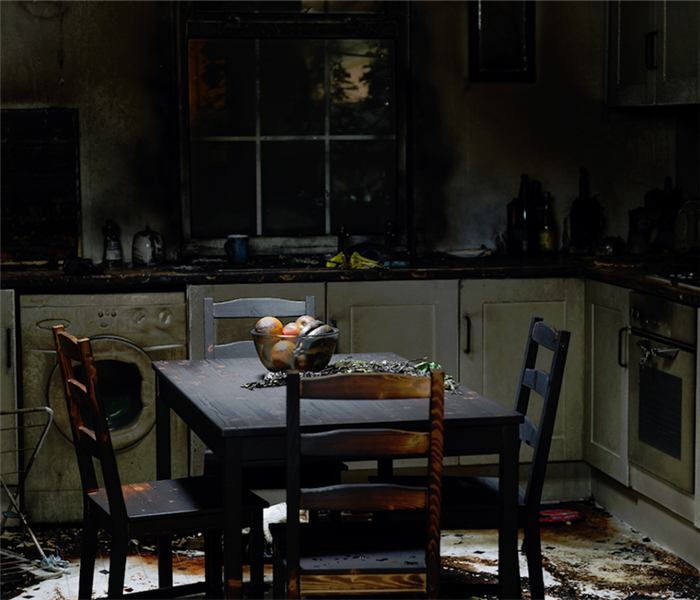 When fire affects your property, effective remediation services are what you need. Contact SERVPRO 24/7. We are standing by to take your call.
When fire affects your property, effective remediation services are what you need. Contact SERVPRO 24/7. We are standing by to take your call.
Reach Out to SERVPRO for Fire Damage Cleanup
Located just 25 miles north of Seattle, Everett is the largest city within Snohomish County. You will find a quaint, lovely historic downtown area filled with unique culture and a vibrant music and arts scene here. There are also plenty of family-oriented events and festivals year-round, so there is never any shortage of things to do or memories in the making. For any homeowner or business in the area, SERVPRO is available with IICRC-certified fire damage restoration services in the event of an emergency. We're Faster to Any Size Disaster.
In addition to water, mold, and fire damage restoration services in Everett, SERVPRO takes pride in being part of the local community. Some of the area attractions include the following:
- Funko: If you are a collector, then you know all about the wonders that await at the Funko flagship store. Whether you are a pop culture fan or have someone in your family who is, this is a must-visit when you are in Everett. Do some shopping to pick out a couple of new Funko Pop figures or learn a bit about the company's history.
- Imagine Children's Museum: This fantastic museum never has a shortage of wonders to learn about. This is a perfect destination to bring the kids for a family adventure so the young minds can get immersed in unique learning activities.
- Summit Everett: When it is time to get some exercise in, this indoor climbing gym in downtown's heart fits the bill. Rain or shine, patrons never have to worry about the weather putting a damper on their activities when checking out some of the different climbs for various ability levels.
If a fire leaves charred debris and smoke damage in your Everett home or business, you must have it cleaned up quickly. SERVPRO of Everett/Lake Stevens/Monroe is here with skilled technicians and industrial-grade equipment to get the job done. Request help online or call to schedule a crew at (360) 243-8313, and we can send our Green Fleet as soon as possible.
Challenges Fabrics in Everett Homes Present After Fire Damage
4/12/2023 (Permalink)
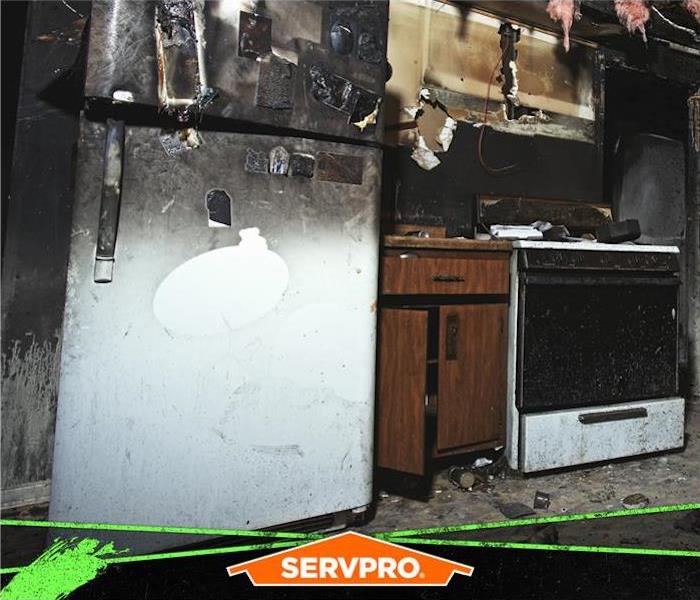 You can trust that your Everett home is in good hands with the technicians at SERVPRO with the equipment and training to help restore your home.
You can trust that your Everett home is in good hands with the technicians at SERVPRO with the equipment and training to help restore your home.
Better Prepared SERVPRO Eases Everett Fire Restoration
You might be expecting significant physical damage in your Everett home when it is engulfed in a fire. However, when there are limited combustible materials to sustain it, or the firefighting response is rapid enough, the flames can die down before they cause extreme fire damage. However, that does not always save you from significant restoration work. Widespread soiling is likely, and some affected materials like area rugs can be challenging to clean.
Ordinarily, soiling in Everett homes after fire damage arises from smoke residues settling on surfaces. Vertical surfaces such as walls and elevated areas like the ceiling collect most of the deposits as the smoke rises since it is hotter than the surrounding air in the rooms. However, soiling on the floor and other lower sections of the house is also likely. Such soiling may be caused by the people who enter the property during the fire or immediately after it is put out. Foot traffic spreads soot and other residues and sets such materials because people's bodyweight forces them deeper into the fibers of materials. When SERVPRO handles restoration, carpets and rug soiling can be limited through a cautious entry. We also use professional cleaning approaches.
Steps for cleaning area rugs
- Pre-inspection
- Pretesting
- Cleaning
The challenge of cleaning fabrics during fire restoration is often aggravated by misunderstanding all aspects of the problem. The fibers in materials and the soils deposited from combustion vary and can lead to a complicated or straightforward restoration process. Our SERVPRO technicians avoid such headaches by taking steps that provide sufficient information about the loss. Pre-inspection and pretesting help avail the necessary information.
How Pretesting Differs from Pre-Inspection
Pre-inspection helps establish the level of problems affecting the fabric. The issues include those created by the fire and any pre-existing ones. SERVPRO does restoration to a preloss state, so any changes developed before the fire might be beyond the scope of the restoration procedures we implement.
Pre-inspection establishes
- Level of soiling
- Color changes
- Symmetry and wear
- Insect damage or infestation
Pretesting is equally essential in resolving fire-related problems. Among other things, it helps establish the best cleaning approach. Because most area rugs are patterned or multicolored, they can be permanently damaged by shrinkage, dyes running, staining, and other problems that develop during the cleaning phase.
Pretesting involves simple or advanced processes that help establish the characteristics of the affected fabrics, especially any vulnerabilities. Our SERVPRO IICRC UFT-Certified technicians identify an inconspicuous rug section and apply a small amount of the strongest cleaning product we intend to use during restoration. We then clamp a white towel over the spot. If the agent can cause dye bleeding, color should be transferred to the towel within 15 minutes.
Other crucial tests include shrinkage and chemical tests. These tests offer guidance on the ideal pH levels for cleaning solutions and the safe temperature to use if the cleaning solutions are heated. In most cases, a pH range of 4.5 to 8.5 is ideal. Restorers should also keep the cleaning solution temperature below 150°F. We also take additional precautions, such as asking for a copy of the manufacturer's cleaning directions if you still have it.
SERVPRO of North Everett / Lake Stevens / Monroe takes care of challenging cleaning tasks restoring fire damage "Like it never even happened." You can reach us at (360) 243-8313.
Some Fire Damage Restoration Methods Used in Local Everett Homes
2/12/2023 (Permalink)
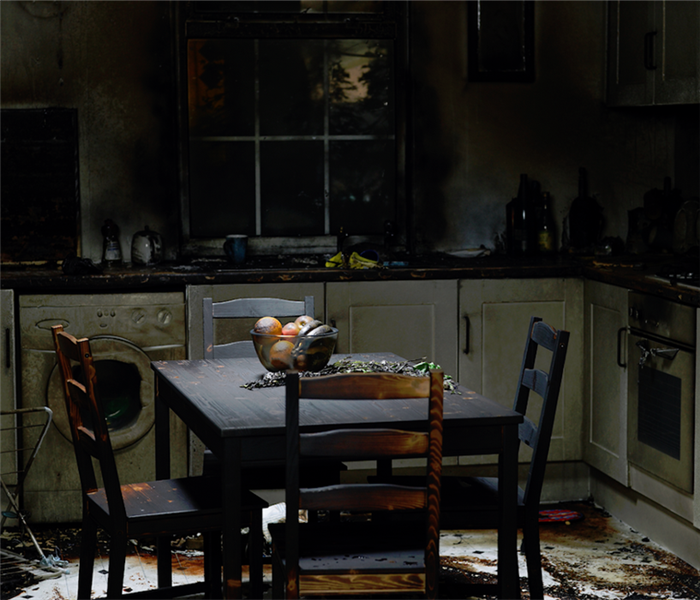 Dealing with the aftermath of a fire can be quite overwhelming. Contact SERVPRO for effective remediation services. Our technicians are standing by.
Dealing with the aftermath of a fire can be quite overwhelming. Contact SERVPRO for effective remediation services. Our technicians are standing by.
Fire Damage Restoration Reduces Replacement Costs
Fire is a complicated thing, used in Everett to heat our homes, cook, and warm up our water supply. It can also destroy the same aspects of our lives if it gets out of our control. A highly skilled fire restoration team with experience and training can turn this terrible event into a distant memory for your family.
To do this for your home in Everett, our fire damage restoration crew must utilize several different techniques. Unfortunately, there is no one-size-fits-all process we can use to restore the assorted elements affected by heat, soot, and direct contact with flames.
The restoration of higher-cost furnishings keeps total expenses low compared to the replacement costs of those items. Some of these items in your home include:
- Wood flooring,
- Painted walls and ceilings, and
- Wooden surfaces.
Instead of removing slightly damaged flooring and replacing it with new, we can clean it. Because wood flooring is a very porous material, not only does it absorb soot, but it can also retain large amounts of water from putting out the fire. We use flushing-out with clean water, vacuuming, and deodorizing to clean and recondition your beautiful floors.
Swirling smoke contains sticky particles that easily adhere to surfaces everywhere, including painted walls and ceilings. Because smoke residues are so abrasive, they are difficult to remove and quickly bleed through regular paints, including primers. We use a shellac or other sealer to prevent bleeding through fire-related particles.
Many fine furniture items contain wooden accents and trims. We get these polished for you again, applying oils and finishes as needed. The upholstered portions, including leather and woven fabrics, require other approaches, including vacuuming, brushing, shampooing, and wiping down with dampened towels.
SERVPRO of Everett / Lake Stevens / Monroe performs restoration work under our General Contractor License (#SERVPES871RD. Call us at (360) 243-8313 for dependable professionals.
Fire Damage Alters Homes in Everett in Unexpected Ways
8/10/2022 (Permalink)
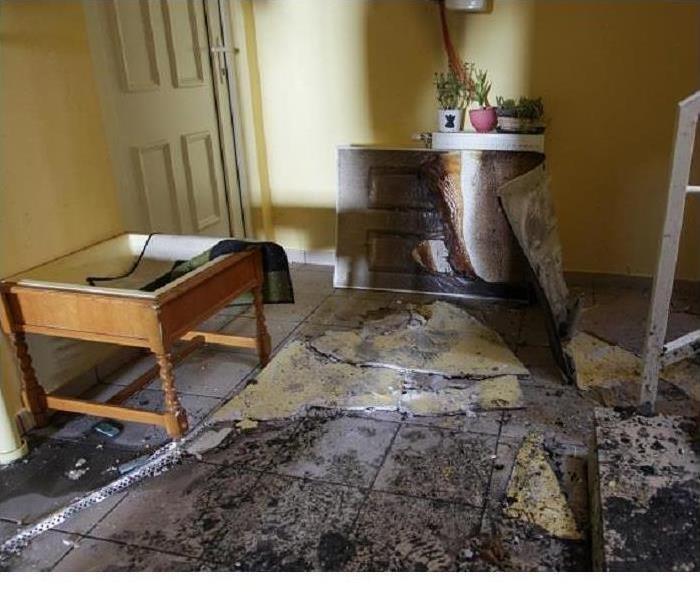 Fire damage? SERVPRO is prepared with restoration equipment and experienced technicians.
Fire damage? SERVPRO is prepared with restoration equipment and experienced technicians.
What Can Fire Damage in Everett Be Like?
A house fire can happen any time of the year in Everett. Fire damage can leave your home unlivable and many of your items irreparably damaged. Some belongings, though, sit under layers of soot and oils that steadily harden as it becomes adhered to the exterior of your otherwise undamaged belongings.
SERVPRO technicians use IICRC-approved methods to mitigate fire damage in Everett. These same techniques consistently provide property owners worldwide with the results needed to get their lives back to normal. The calculations, the equipment, and the terminology might all seem strange and complicated. Still, our workers are highly trained and understand how to make it all work for your benefit.
Here are some facts about our fire damage techniques:
- We don’t point air movers directly at damp surfaces,
- Tools range from foamy brushes to sandblasting equipment, and
- Some methods require more than one attempt, and that’s normal.
It is crucial to the restoration work in your home that you not adjust any of our equipment, including our air movers. These devices should rarely, if ever, point directly at a wall. A direct blast of air would only drive moisture more profound into the material, not out of it.
Tiny brushes poofed high with soap suds for detailing soot-covered antiques can do a lot of good in the hands of an experienced restorer. Sandblasting equipment removes charred areas on wood and reveals the fresh, undamaged wood underneath. We use ice pellets for this instead of sand, of course. It even removes the foul odor!
Soot continues to break down into smaller pieces that rise into the air on air currents. Odor control becomes an ongoing task, as does removing dusty soot layers from your home. We can use air scrubbers to help ease this task and thermal fogging.
SERVPRO of North Everett / Lake Stevens / Monroe has excellent techniques for this and any other disaster that might affect your residence. Call us at (360) 243-8313.
What is the Right Approach to Fire Damage?
8/10/2022 (Permalink)
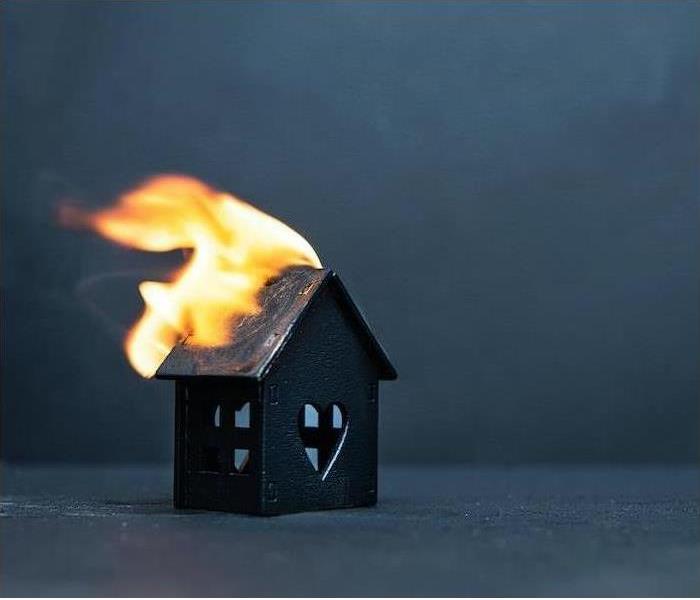 You can trust that your home is in good hands with the experienced technicians at SERVPRO. With the tools and skill to help restore your home.
You can trust that your home is in good hands with the experienced technicians at SERVPRO. With the tools and skill to help restore your home.
Protect your Everett Home After a Fire by Calling a Professional Fire Restoration Team.
Fire can erupt in your Everett home for many reasons. Whether it was preventable or merely an accident due to aging wires, the resulting damage can be enough to make you worry. Rather than attempt to clean up smoke and soot damage on your own, invite a professional team to assess the accident's scope. Even the smallest fires can leave significant consequences in their wake, and the best way to avoid escalation is to inspect your whole home thoroughly.
Homeowners in Everett can face fire damage restoration with the help of our SERVPRO crew. Our team is certified by the Institute of Inspection, Cleaning, and Restoration Certification (IICRC) as fire restoration technicians. We apply our knowledge for your benefit. Simple solutions are not enough to erase fire damage. Instead, understanding the theory of fire and the suitability of cleaning techniques and solutions are a sound foundation for addressing your needs. Our team brings the most advanced methods and equipment to your home shortly after you place a call to our 24/7 hotline.
What Should People Look For in a Successful Fire Restoration?
Many variables affect the restoration process, and our SERVPRO team is ready to evaluate them. The relative humidity of your home, the cause for ignition, and the path of the smoke through your ventilation system help dictate our steps as we clean. Some other aspects we consider also include:
The finish of the surfaces we clean- untreated wood absorbs water and soot more readily, whereas varnish could protect surfaces like floors and furniture.
Permeability- water can settle into natural materials and make a suitable environment for mold to grow. Anti-microbial solutions can help clean now to avoid problems in the future.
Deodorizing- the smell of smoke may need to be counteracted with odor pellets, ozone, or foggers, depending on the level of severity and nature of the fuel that ignited.
SERVPRO of North Everett / Monroe/ Lake Stevens is at your service when disaster strikes. Contact us at (360) 243-8313 and let us leave your home "Like it never even happened."
What Obstacles Exist with Cleaning Fire-Damaged Finished Wood Surfaces in Everett?
4/28/2022 (Permalink)
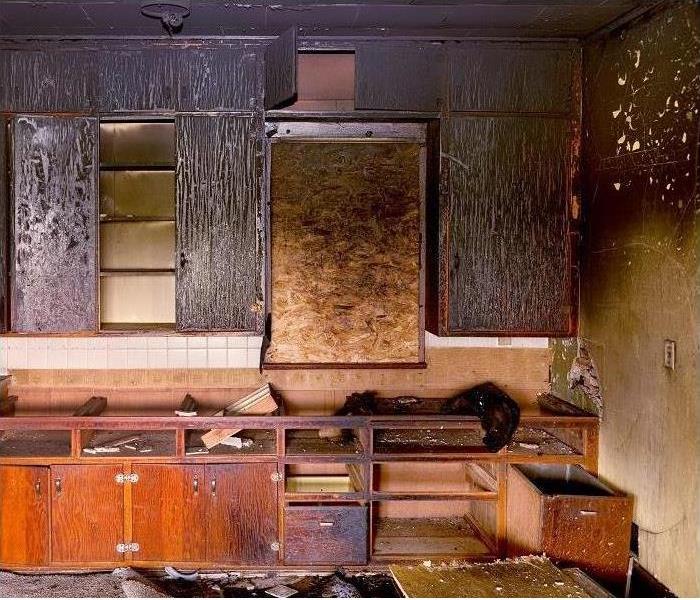 After a fire incident, you want help from the experts. SERVPRO is Here to Help.
After a fire incident, you want help from the experts. SERVPRO is Here to Help.
With Wood Flooring, Cabinets, and Other Elements in Everett Homes, Fire Damage Cleaning Can be an Intricate Process to Avoid Tear-out and Reconstruction.
When house fires occur in Everett communities, you can feel overwhelmed by the initial appearance of the property. The burning of fuels like wood can create soot and smoke residues that coat surfaces to appear like irreparable damages and total losses. In truth, there are often many ways to clean and restore these coated surfaces when it is cost-effective and beneficial to do so.
Fire restoration in Everett homes can be complicated by elements like finished wood, despite its advantages of being less porous than untreated options. A finish on the surface can protect these elements from quickly absorbing secondary concerns in the house after a fire, such as pooling water from extinguishment. This lower permeance also reduces how damaged these elements can become when directly exposed to smoke and soot residues coming to rest on the surface. The most commonly affected finished wood fixtures and materials within your house include:
- Cabinets
- Flooring
- Wall Materials
- Furniture
What Type of Finish?
Just having finished wood surfaces might seem like enough information for restoration professionals like our SERVPRO team. However, there are often more answers needed to treat the affected materials and prevent tear-out and rebuilding. The types of finish vary considerably between furniture and fixtures of the property but often include several potential options:
- Varnish
- Polyurethane
- Shellac
- Paint
- Lacquer
Each of these finishes can react differently over varying exposure times to direct fire damage or lingering soot and smoke residues. Cleaning these elements is an essential component of property loss recovery, however, and should begin as soon as mitigation efforts get underway in the house.
What Is the Common Method of Cleaning Residues?
Based on the evaluation of the damages conducted by our competent project manager after the property is cleared to enter by first responders, we can determine the best approach for removing soot residues from finished wood. Wet and dry smoke concerns can often clean up differently than more stubborn grease-based protein residues that might impact finished wood cabinets in a kitchen area. Typically, the cleaning of light or moderately damaged wood surfaces involves:
- Wet Cleaning – The application of water-based solvents, detergents, and wet sponging in damaged areas can often be a practical choice for residue removal.
- Agitation – Light agitation like scrubbing on finished wood can be beneficial to ensure that any grain markings get cleaned. We can remove loose soils from the surface before wet cleaning with dry vacuuming.
- Soft Cleansers – General surface cleaners are often all that is necessary for removing soils from finished wood unless the concentration of these residues is severe.
What Steps Are Needed for Heavier Smoke Damages?
Ultimately, there are often always surfaces that become heavily impacted by circulating soot and smoke particles. Thick and challenging residues require focused attention and products to resolve. During the mitigation phases, where other surface cleaning actions are taking place, we can work on the multiple-phase cleaning of heavily soiled structural elements and contents. Individual items can benefit from restoration at our nearby SERVPRO facility under our experienced cleaning technicians' eye, while installed materials require on-site solutions, such as:
- Stronger Agitation – Beyond practices like removing heaped soils with vacuuming, more abrasive cleaning techniques might be necessary with steel wool to achieve the desired level of soil removal.
- Potent Cleaners – Wood créme cleaners can be a beneficial choice in products for heavier smoke damage.
- Stripping – Completely removing the finish on wood surfaces can often be an aggressive technique for removing smoke damage when it is cost-efficient.
- Controlled Demolition – In the most extreme cases, when even more direct cleaning methods are not sufficient, our contractors can remove the damaged material or fixture altogether and replace them later.
Does SERVPRO Do Reconstruction?
When controlled demolition occurs or structural compromise exists from the fire itself, our professionals and contractors can both work to achieve efficient results in repairing and restoring the property. Reconstruction is often a vital element in making fire losses “Like it never even happened.” Building trade professionals on our roster can complete initial temporary construction solutions based on the immediate needs of the property and full-scale build back upon mitigation phases completing.
Fire losses can feel overwhelming for homeowners, especially when you are unsure of what to expect with soot-covered surfaces and finished wood furniture. Our SERVPRO of North Everett / Lake Stevens / Monroe team can help with a fast response 24/7 by calling (360) 243-8313.
For Lake Stevens Properties Odor Control is Essential Post Fire
3/15/2022 (Permalink)
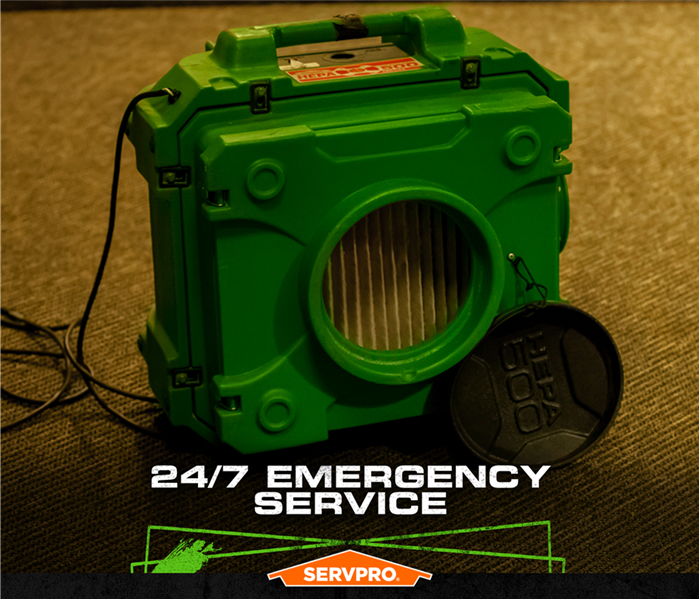 SERVPRO provides air scrubbers to improve IAQ indoor air quality after a Lake Stevens house fire
SERVPRO provides air scrubbers to improve IAQ indoor air quality after a Lake Stevens house fire
Odor Management after a Fire in a Lake Stevens Home
Odors are a common effect that Lake Stevens homeowners must contend with after a fire – regardless of its size or severity. Our professionals have methods to manage these detrimental effects and help limit its migration. With the application of specific tools and products, we can eliminate these odors and help to continue the process of making a fire loss, “Like it never even happened.”
Though we have a fast response that dispatches qualified professionals 24/7 from our facility, the effects can be widespread through the house by the time our crew arrives at your Lake Stevens fire damage emergency. As premier specialists in fire loss scenarios, we have the training and expertise to assess the situation and set up the appropriate containment barriers to enclose the affected spaces to maximize our odor removal and cleaning efforts.
Managing the presence of smoke odors can come with risks and hazards, as many of these same situations have airborne threats such as soot particles. Soot is highly acidic in its composition, and because of its microscopic size, it can penetrate deeply into the lungs and cause health effects for those exposed. Our SERVPRO team must address these concerns and the odor to keep the technicians on-site and the house's occupants safe.
While air scrubbers and negative air systems can help reduce the presence of these particulates and debris in the environment by running the air inside through HEPA filters, we can often utilize a tool like our hydroxyl generator. Using a UV spectrum that interacts with water vapors in the environment, these machines can clean and deodorize affected areas.
Containment strategies like plastic sheeting can help slow the progression of spreading odors throughout the home and any existing particulates or contaminants in the air. By focusing on filtration and deodorization, our SERVPRO of North Everett / Lake Stevens / Monroe team can make your home safe to be in after a fire. Give our professionals a call anytime you need us at (360) 243-8313.
What are the Benefits of Everett Professional Fire Restoration?
2/8/2022 (Permalink)
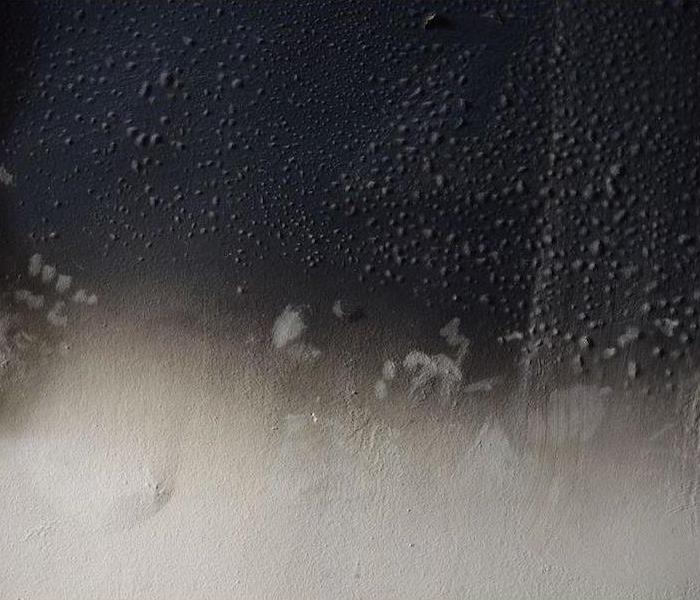 If you find yourself in need of assistance with fire damage remediation, call SERVPRO of North Everett / Lake Stevens / Monroe at (360) 243-8313.
If you find yourself in need of assistance with fire damage remediation, call SERVPRO of North Everett / Lake Stevens / Monroe at (360) 243-8313.
SERVPRO Techs Brings Both Training and Experience to Every Fire Damage Cleanup
Post-fire in an Everett property can look dismal. The layer of soot covering items in the area can easily show that nothing within the damaged site has restoration potential. That is why it makes sense to bring in a professional service rather than rely on DIY methods for fire cleanup that can increase the damage to the structure and contents.
When SERVPRO handles fire restoration in an Everett residential property, the technicians approach the job with both compassion and professionalism. They know this is a stressful time for the homeowner, and if preferred, the techs can communicate with the insurance adjuster. In contrast, the homeowner handles other necessities after a fire, such as:
- Finding a safe location to live during the mitigation
- Making arrangements with creditors as needed
- Filing the necessary insurance claims and gathering information
The techs inspect and handle all aspects of the job, from the heavy cleanup of charred debris to the light touch needed gently removing soot from articles from the house. The techs inspect each object within the work area to determine the restoration potential through cleaning.
Suppose an item is found to be beyond repair due to fire and sometimes water damage. In that case, the technicians document the thing for insurance purposes and get permission from the property owner or adjuster before discarding it. The documentation process involves a detailed report and photographs to prove that the decision not to restore was correct. This report can assist the homeowner in streamlining their claims process.
SERVPRO of North Everett / Lake Stevens / Monroe at (360) 243-8313 helps local Everett residents with any size or type of fire restoration services needed, and the support is available 24/7.
What Is the Best Way to Handle Structural Materials When Addressing Fire Damage in Everett Homes?
12/27/2021 (Permalink)
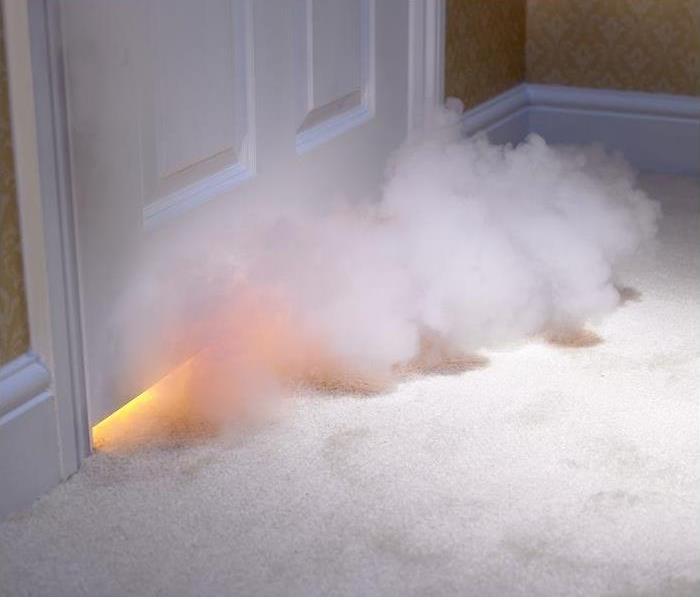 Whether fire damage in your property is significant or minimal, SERVPRO is your one-stop-shop for fire restoration.
Whether fire damage in your property is significant or minimal, SERVPRO is your one-stop-shop for fire restoration.
SERVPRO Performs Controlled Demolition Based on the Extent of Fire Devastation in a Property
Whether fire damage in your property is significant or minimal, charred or heavily soiled material remnants in the affected areas need removal before rebuilding and refinishing can commence. Removing contaminated materials also helps with odor management. The removal requires demolition, especially when opening enclosed spaces such as walls and cabinets.
The level of demolition needed to manage fire damage in your Everett home varies from very light such as removing trim and some drywall, to extensive processes involving all finished surfaces. Each case presents unique challenges. For instance, the challenge of light demolition is to remove the affected materials without causing unnecessary damage, especially to structural supports. Involving SERVPRO ensures the tear-down runs smoothly, delivering the desired results.
Various considerations are essential while doing the demolition, including:
- Safe removal of fixtures from the surface
- Containment to prevent cross-contamination of other areas
- Proper scheduling of the steps involved in the removal
Drywall and ceiling panels bear the brunt of fire effects since they readily combust or provide the best location for smoke residues to settle. Ceilings and walls offer a perfect anchor point for various accessories, including shelves, cabinets, and lighting fixtures. When our SERVPRO technicians remove these accessories, we start with the components on the walls, then the ceiling before focusing on finished floors.
When fire affects a limited area, such as a single room in the entire house, our SERVPRO crew chiefs assess the best locations to erect containment barriers to keep debris such as drywall dust or ash from spreading to the rest of the house. We use plastic sheets to seal off openings such as doors or even create rooms-within-rooms, thus containing debris within the areas affected by the fire.
SERVPRO of North Everett / Lake Stevens / Monroe understands the importance of good management in improving the outcomes of fire damage restoration. Call us at (360) 243 8313 to help make the incident at your premises “Like it never even happened.”
Three Soot and Smoke Removal Techniques for Lake Stevens Homes
10/28/2021 (Permalink)
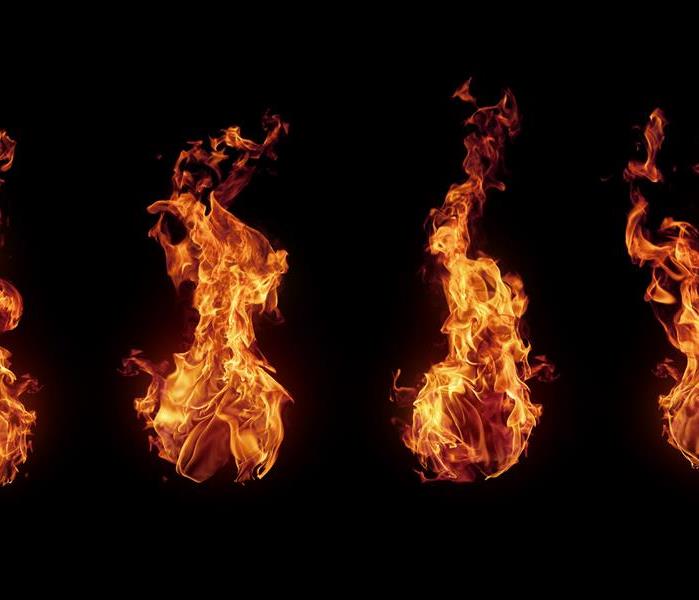 SERVPRO fire damage restoration team uses biocides for all fire damage remediation services. Call now!
SERVPRO fire damage restoration team uses biocides for all fire damage remediation services. Call now!
Post-fire cleanup involves several steps and stages, like these soot removal options for Lake Stevens properties.
Recovering fire-damaged homes after these emergencies requires a range of valuable services intended to overcome smoke and soot threats that exist throughout the house. Partial combustion can be among the most threatening situations for these structures, as it leaves surfaces vulnerable to become hosts for threatening carcinogenic particles.
Surface Cleaning with Powerful Products
Fire damage cleanup in Lake Stevens homes can often focus most on our professionals' steps to overcome surface smoke residues. Solids coming to rest on horizontal shelves or adhered to vertical surfaces require a range of dry and wet cleaning approaches to overcome. We can often more easily provide surface cleaning solutions using products like solvents and alkaline cleaners to balance pH content.
Aggressive Cleaning and Abrasive Removal Efforts
Sometimes, surface cleaning options are not effective for what the underlying hosting material requires. In some situations, aggressive cleaning might be necessary. Determining when more abrasive techniques might be needed often comes from the data collected during job scoping and damage assessment. Some of the aggressive methods to protect underlying substrates includes:
- Soda blasting
- Dry ice pellet blasting
- Sponge pressure cleaning
Controlled Demolition for Severe Damage
While structural demolition is often the last resort, we do have a general contractor license to help when this process is needed. In many structure fire situations, some degree of demolition is necessary, along with repairs and reconstruction. When soot overwhelms flooring and wall systems, it can often be more cost-effective to remove these elements and replace them rather than take a much longer time attempting to clean them with no guarantees.
Fires can be traumatic and fast-moving in your home. When soot damage exists on the property, our SERVPRO of North Everett / Lake Stevens / Monroe team can help. Call us at (360) 243-8313.
Objectives of Housefire Cleanup for Everett Homes
10/12/2021 (Permalink)
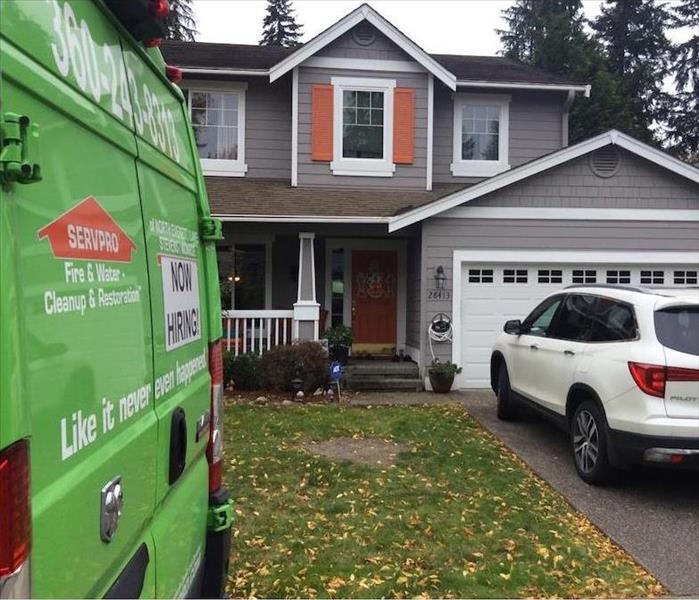 SERVPRO fire damage restoration is a must. We have a contractor license for all build-backs. Call now for fast and immediate service.
SERVPRO fire damage restoration is a must. We have a contractor license for all build-backs. Call now for fast and immediate service.
Fires can move quickly through residences, so effective restoration practices are vital for Everett properties.
With the uncertainties and destruction of fire loss events in local homes, having a team of professionals act quickly can make the difference in what areas of the house are salvageable and which are not. We have multiple objectives to house fire cleaning when our SERVPRO team first arrives.
Emergency Services Needed for Homes
Before much of the fire restoration in Everett homes can begin, specific emergency services must occur. These initial actions are taken to overcome pressing concerns that could pose a danger to responding technicians or the occupants of the house. With our general contractor license, we can help with elements like controlled demolition and boarding up damage to the home, but we must also focus on actions like:
- Water removal
- Content relocation
- Air filtration
- Debris removal
Cleaning Up Smoke Damage
Smoke can be among the most formidable obstacles for fire restoration technicians, mainly due to the range of ways it can impact the property. To bring a residence to its original condition, we must overcome residues, odors, and other smoke-related concerns.
Repairing a Fire-Damaged Everett Residence
Repairs are often necessary after a fire, and this is something that our team can provide with our contractor license as well. Reconstructing damaged areas of the house and reinstalling removed structural elements is vital to making fire losses “Like it never even happened.” Having this ability saves customers time and money on choosing a second contractor to help with build-back services.
Fires can be a rapidly developing and spreading threat to your property, so our SERVPRO of North Everett / Lake Stevens / Monroe team must act fast to mitigate loss and contain the damaged areas. We are ready to respond 24/7 to help when you call (360) 243-8313.
What Can You Expect First from Fire Restorers in Your Everett Home?
7/16/2021 (Permalink)
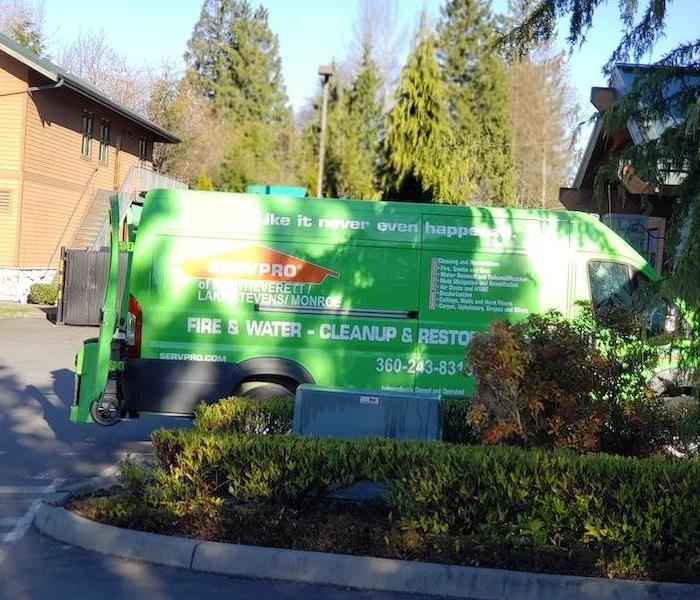 Soot and smoke damage by fire is no easy task. Call SERVPRO for fast and immediate fire damage mitigation.
Soot and smoke damage by fire is no easy task. Call SERVPRO for fast and immediate fire damage mitigation.
SERVPRO Professionals Provide Immediate Mitigation Services to Help Everett Properties.
Fires can happen from multiple sources and range in severity. With the quickly spreading effects like soot and smoke, our rapid response team can help with direct mitigative action.
What Initial Actions Do SERVPRO Professionals Take?
Because fire damage restoration in Everett homes must happen quickly, it is important to know what to expect when our SERVPRO team first arrives.
- Inspections – Careful evaluations of the property determine where content damage and structural concerns exist. This process gets coordinated with insurance providers to expedite a claims process.
- Drying – Removing standing water and oversaturation of exposed materials often follows extinguishment.
- Emergency Electricity – Damage to structures can often leave the property without sufficient power to operate tools and equipment for restoration. We have portable generators and spider boxes to get several units going at once.
- Deodorization/Cleaning – Especially in scenarios where relocation of house occupants is not required, surface cleaning and deodorization can be vital initial services to make families comfortable.
- Content Management – Protecting what matters most is critical after a fire. We can relocate or surface clean individual items and belongings to prevent irreparable harm.
Our SERVPRO of North Everett / Lake Stevens / Monroe team is available 24/7 to help with fire loss effects that threaten your home. Give us a call at (360) 243-8313.
Lake Stevens Fire Professionals Give Tips on How to Clean Fire Damaged Belongings
5/26/2021 (Permalink)
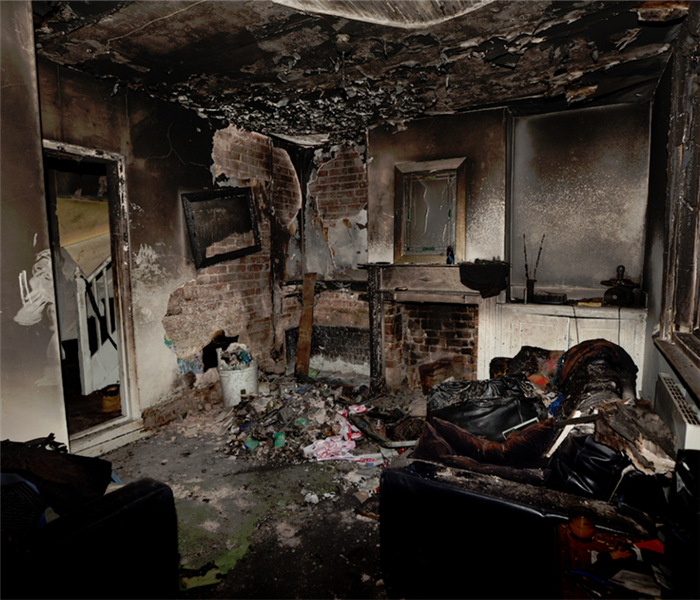 Fires can leave many stains and odors in your home. Team SERVPRO has the equipment and the know-how to remediate the fire damage.
Fires can leave many stains and odors in your home. Team SERVPRO has the equipment and the know-how to remediate the fire damage.
Steps that Guarantee Good Outcomes When Cleaning after Fire Damage in Your Lake Stevens Home
Cleaning is one of the regular tasks after fire damage. The combustion process releases various residues, gases, and aerosols, necessitating thorough cleaning efforts to restore the property to its preloss state. The level of cleaning needed depends on the types of materials burnt and the intensity of the fire. Therefore, even a minor incident can leave you with a significant cleaning task.
Finding All Soils
For minor incidents of fire damage in your Lake Stevens home, most of the soiling is likely to be from smoke residues which you can remove by cleaning. Unfortunately, smoke spreads readily through convectional currents, so it is likely to reach every section of your property. Apart from the effort you put into cleaning, you also need the right cleaning agent to remove the residues from carpets, upholstery, and other fabrics. If possible, choose a cleaning agent that bio-degrades rapidly. You can also look for an agent that resists re-soiling.
Using the Right Cleaning Agents
Cleaning should remove soils such as soot, stains and even deal with odors. However, it is possible to cause the same problems during the cleaning exercise. For example, using a cleaning agent with dyes or strong fragrances can leave stains on your fabrics or a pungent smell. Our SERVPRO technicians use professional cleaning agents such as Carpet & Upholstery Green Clean solution. This product has no fragrance or dyes and is pH neutral – it is one product that does all.
Giving Enough Dwell Time
Most cleaning agents need time to react with soils for the perfect outcome. Therefore, even though you need your property back to its preloss state fast, failure to give products enough dwell time can prolong the process. You should check product labels for this information. Our SERVPRO technicians undergo regular training equipping them with sufficient knowledge on the best ways to use various cleaning agents. We also check other issues such as whether upholstery is water stable and whether the cleaning agent is safe to use with natural fibers such as wool before cleaning.
Your home should look and smell good after restoring fire damage. Call SERVPRO of North Everett / Lake Stevens / Monroe at (360) 243-8313 to help you clean up all soiling, "Like it never even happened."
Is It Advisable To Wet-Clean Walls During Fire Restoration In My Everett Home?
4/23/2021 (Permalink)
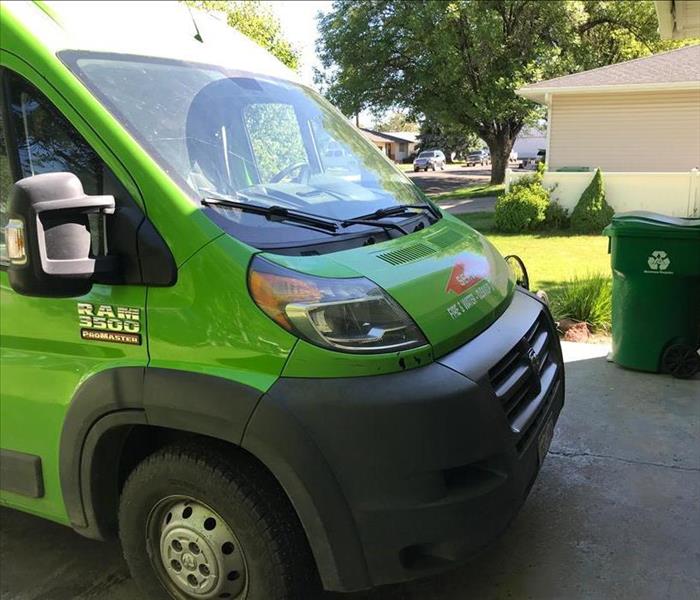 Call SERVPRO immediately following a fire in your Everett home. We will leave your home looking "Like it never even happened."
Call SERVPRO immediately following a fire in your Everett home. We will leave your home looking "Like it never even happened."
SERVPRO Tackles All Delicate Processes during Fire and Smoke Damage Restoration in Everett
After the fire is out, it is best to avoid escalating problems in the fire-damaged homes. A noble process such as cleaning soiled areas can cause unintended problems. Wet cleaning poses more risks than dry cleaning because the moisture can set residues, weaken the wall materials or cause mold development.
When cleaning walls as part of fire restoration in Everett properties, SERVPRO technicians wash, rinse and dry the affected areas without causing other problems. Preparation of equipment and the work area is necessary to achieve the desired outcome. Our technicians prepare a couple of resources, including:
- Vacuum cleaners and ceiling brushes to remove heavy soils
- Plastic drop clothes to protect contents like furniture
- Towels for wiping surfaces
- Cleaning solutions
Knocking or brushing the soiled surface loosens the residues. Our technicians then vacuum the surrounding area before starting to wipe with towels soaked in the cleaning solution. Squeezing excess water from the towel and wiping the wall from the bottom removes the soiling without over wetting the surface. Our skillful approach is necessary when addressing:
- Smoke damage
- Fire restoration
- House fire clean up
SERVPRO of North Everett / Lake Stevens / Monroe can help you whenever you need fire restoration services. Call us at (360) 243-8313.
Can Ductwork Damage by Soot in Everett Homes Get Clean?
2/9/2021 (Permalink)
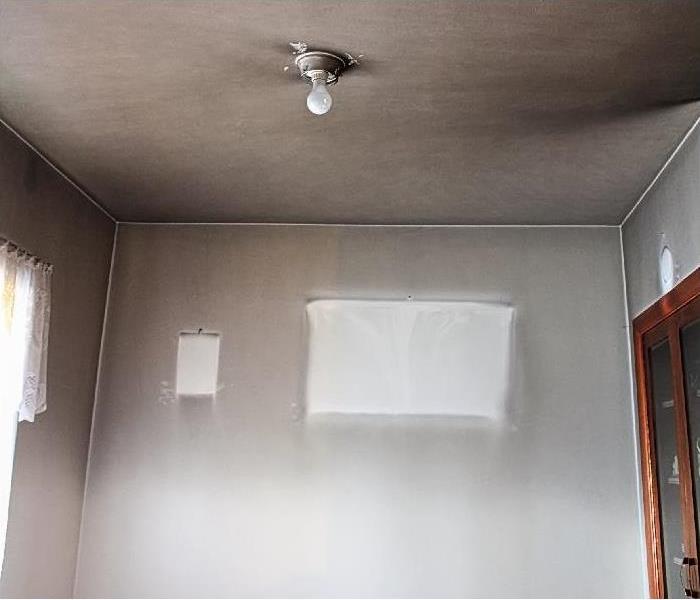 Did you know that ductwork needs cleaning after fires? Smoke and soot travel from even small fires into the ductwork.
Did you know that ductwork needs cleaning after fires? Smoke and soot travel from even small fires into the ductwork.
SERVPRO Provides Fire Restoration Services that Clean and Restore Impacted Ductwork
Many indigenous people settled near coastline areas due to the abundance of available food. The Port Gardner Peninsula drew tribal people thousands of years before modern man arrived. The first to inhabit Everett and the surrounding area we know of were the Coast Salish tribes, roughly 2,000 years ago. Later the Snohomish tribes thrived around local waterways.
Coast Salish People
This ethnic group is connected by language. It consists of many tribes with slightly different Coast Salish languages. These people groups dominated the Northwest Coast region, living in British Columbia, Canada, and Washington and Oregon. The list of tribes is quite extensive and included the Tillamook tribes. Here are early observances we know about:
- Settlements dating back to 2000 BCE exist, and the remains can be seen today.
- Prominent villages were established along the Duwamish River estuary in the 6th century.
- Natives were living in that settlement until the latter 18th century.
- Jose Mari Narvaez and Juan Carrasco came into contact with the Coast Salish tribes while exploring the Strait of Georgia in 1791.
- The natives raided much of the Puget Sound region between 1810 through the 1850s.
Smallpox and other diseases ended up killing off much of the tribes over time.
The Snohomish Tribe
The Snohomish people, often known as the Lowland tribe, reside near the Puget Sound area. They are part of the Lushootseed Native American tribe and speak the Lushootseed language. Historians have extensively debated the meaning of their name. Possible meanings include:
- A style of union among those of the brave
- Sleeping Waters
- Many people
- Warrior tribe
The Snohomish are hunters, gatherers, and fishermen. In 1844, we know there were 322 members of the tribe, and in 1854 the tribe had increased to 350. During this period, smallpox was devastating many Native American tribes, and their increase indicated they were not impacted as severely as others in the same area.
Encountering the Hudson Bay Company
In 1824 John Work, a trader for the Hudson’s Bay Company, encountered the Snohomish. They were afraid his group had come to attack them as hostile tribes were often a problem. But to their delight, they discovered the traders were friendly. They became one of the tribes trading with the Hudson’s Bay Company Fort Nisqually.
Snohomish County - Traditional Homeland
Today Snohomish County is considered the traditional homeland of the Snohomish tribe. Since they were the first residents of the area, the county is named in their honor. Tommy Yarr, a Notre Dame Fighting Irish football captain and former NFL player, is from the Snohomish tribe.
Can Soot Get in My Ductwork During a Fire?
Even in small, contained fires, soot can travel into the tiniest spots. If your HVAC system is running when the fire occurs, shut it down immediately to prevent smoke residue from spreading to other areas. When our technicians arrive and scoping is completed, they can clean the ductwork.
Getting Rid of Soot Smells
Soot and smoke residue leave foul odors that linger, which is why immediate mitigation is needed. Our techs first determine the type of soot they are dealing with and then use the proper cleaning method. The following steps remove the odors:
- Matching the cleaning agent to the kind of soot
- Using advanced deodorization equipment and methods
- Locking in mild aromas left behind with sealants
For professional fire restoration services in Everett, call SERVPRO of North Everett / Lake Stevens / Monroe at (360) 243-8313.
Celebrate New Year’s Eve in Everett with a Virtual Concert
12/21/2020 (Permalink)
 Start the New Year with a fire-damaged home in Everett cleaned up by SERVPRO while you enjoy the virtual concert
Start the New Year with a fire-damaged home in Everett cleaned up by SERVPRO while you enjoy the virtual concert
Nectar Lounge Invites all of Everett to Join their NYE Event for a Fun and Safe Way to Ring in the New Year!
Whether you live in Everett or a nearby town, you may be making plans to celebrate the arrival of 2021. In such an odd year, a big party with your friends may be questionable, but the idea of it being like any other day is also discouraging. In Seattle, Nectar Lounge invites attendees 21 and over to join NITE WAVE, a virtual 80s live stream concert you can join starting December 31st at 10:00 p.m. You can celebrate with a crowd and good music from the safety of your own home!
- The theme of the party is the 80s!
- You must reserve your tickets online to attend
- There is no charge to join, but contributions are encouraged.
- You may contribute via Venmo or PayPal and are invited to subscribe to Nectar’s YouTube Channel.
- This event is part of the Nectar Virtual Concert Series, and contributions help Nectar musicians during this challenging year.
At SERVPRO, we are also committed to our community by providing the best fire cleanup services in the area. As we ring in a new year, we stand at your service whenever restoration services are in order. SERVPRO of North Everett/ Lake Stevens/ Monroe is a phone call away. Call us at (360) 243-8313 whenever you need us and let us focus on leaving your home, “Like it never even happened.”
Lake Stevens Families are Invited for Some Holiday Fun
12/14/2020 (Permalink)
 Lake Stevens House caught fire? No worries, SERVPRO can clean up the damage, "Like it never even happened," while you enjoy the Holiday Light Show
Lake Stevens House caught fire? No worries, SERVPRO can clean up the damage, "Like it never even happened," while you enjoy the Holiday Light Show
Enjoy a Festival of Lights Just a Few Miles from Lake Stevens
Lake Stevens children and their parents are eagerly awaiting the holiday season and taking part in celebrations. Now that gathering in large groups may prove challenging; we need to think of other ways to keep the holiday spirit alive. Not too far from Lake Stevens, in Stanwood, you can enjoy a drive-thru experience to celebrate. “The Lights of Christmas 2020” will take place on selected dates throughout December, making it an easy to plan adventurous outing.
You can purchase your admission online by visiting the event website; no onsite admission is available.
- Drive-thru hours are from 5:00-10:00 p.m. and takes about 20 minutes.
- More than one million lights and accompanying music through LOC Radio 101.9 will provide entertainment to the whole family.
- If you go before December 23rd, you’ll catch a glimpse of Santa before he heads to the North Pole.
- Santa and lights are an essential part of this time of year, and at SERVPRO, we celebrate their arrival.
Just as we wish you the best now and for the new year, we hope you never need our fire and smoke restoration services. But, if you do, we are here to help and mitigate your loss after an incident.
SERVPRO of North Everett/Lake Stevens/Monroe is at your service. Call us at (360) 243-8313 and let our expert staff work for you until your home looks “Like it never even happened.”
Should I Call a Team That Specializes in Fire Restoration After Our Everett Kitchen Fire?
6/28/2020 (Permalink)
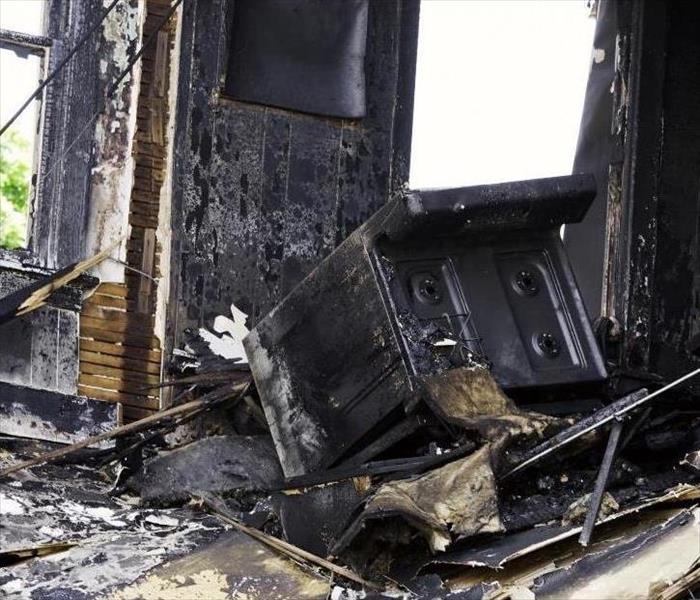 Take the time to call a certified restoration team after a fire in your kitchen. SERVPRO is on call 24/7 365 days a year.
Take the time to call a certified restoration team after a fire in your kitchen. SERVPRO is on call 24/7 365 days a year.
SERVPRO Handles Fire Restoration and Debris Removal at Your Everett Home in a Reliable, Responsible Manner
The aftermath of any house fire, big or small, is mentally and emotionally draining. You have to think about the cleanup, and you might have to relocate your family temporarily during the cleanup and restoration phase. Regardless of the severity of the fire damage, we are Faster To Any Size Disaster at SERVPRO, and we are available to bring your Everett interior back to preloss condition.
Do You Take Away All Debris?
A significant part of the process of fire restoration in Everett is carefully and safely disposing of all charred materials and unsalvageable belongings. Our restorers take the time necessary to determine what requires replacement and any areas that must get addressed to remove charring or fully restore with brand-new materials. Any solid waste that is not salvageable has to get disposed of according to local guidelines. To make it easier on you, our crew can transport the following to local landfills on your behalf:
- Demolition debris
- Charred building materials
- Bricks and concrete
- Damaged electronics or appliances, and more
With most fire damage projects, controlled demolition helps us to remove all materials burned in the fire so that they can be replaced with brand-new materials. Throughout your interior, we also use sand and soda blasting methods that allow us to remove charring so that we can restore areas where possible.
Depending on the soot and smoke residue, and level of damage throughout the home, we have skilled restoration technicians to help with things like:
- Salvaging electronics
- Furniture restoration
- Document recovery, and more
We leave no stone unturned and take the extra time necessary to ensure everything gets fully documented. This allows us and you to have a detailed inventory of all items in the home, both for your peace of mind and our records while giving you the paperwork you need for your insurance claim.
Call us at SERVPRO of North Everett/Lake Stevens/Monroe when you need help with fire restoration. You can reach us 24/7 at (360) 243-8313.
Click here for more information about Everett.
Is There a Science Behind Everett Fire Damage Odors and Their Elimination?
4/23/2020 (Permalink)
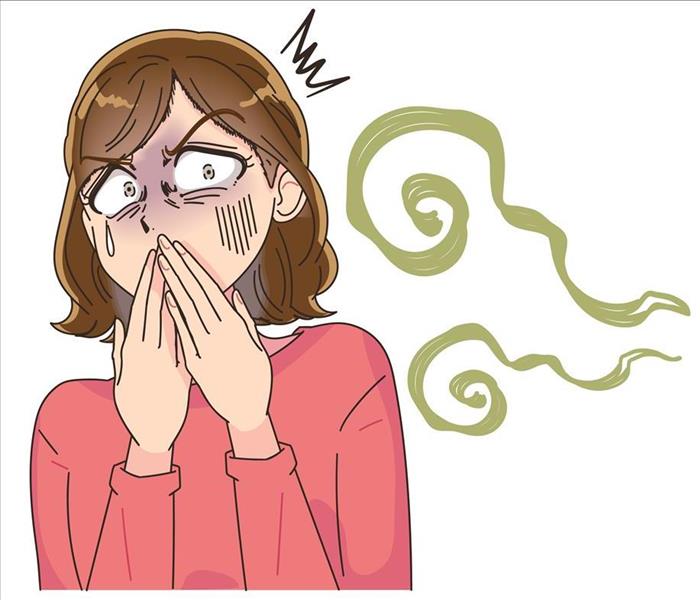 Homeowners have to deal with many things which may include fire damage and pesky odors left behind. Contact SERVPRO right away.
Homeowners have to deal with many things which may include fire damage and pesky odors left behind. Contact SERVPRO right away.
SERVPRO Teams Understand The Many Ways Fire Can Cause Damages, Helping You Mount an Appropriate Response
Superficially, odor elimination following fire damage appears to be a simple process without much science behind it. In actuality, removing unwanted fire-related smells from your home is a more complicated process.
There is a science behind Everett fire damage smells. The strength and persistence of an odor depend on various factors. The temperature of the fire, its duration, the concentration of the residues it produces, and the porousness of materials in your home all contribute to how strong and persistent an associated smell is.
The hotter a blaze burns, the more the space between materials’ particles expands. A longer, hotter fire allows more odor particles into materials, especially those that are more porous, and enables them to penetrate these objects more deeply. Once the flames die out, and the air cools, these odor atoms become trapped in household items and structural elements. Later, weeks or even months after a fire, high temperatures and humidity can vaporize these bits and make unwanted smells reappear.
Effectively dealing with these bad smells in your Everett home requires a scientific plan of action. Such a plan often involves both odor removal and odor control. First, when following such a plan, SERVPRO removes malodorous structural elements and debris. Their technicians then work to clean away odor-producing residues from ceilings, walls, and household objects. After workers have removed smell-causing items and fire remnants, they move on to controlling odors emanating from things they cannot easily remove.
SERVPRO professionals in Everett use many different methods to control odors. One is they try to counteract smelly particles on surfaces. They do this by trying to recreate the technique of odor penetration and eliminating, or masking smells via the same medium particles were initially deposited. So, if these atoms were originally deposited by way of smoke, SERVPRO technicians use foggers to “smoke” them out. Another way workers try to control bad smells is by sealing them into affected materials. This is done either by painting the objects in question or via another means.
Whenever fire damage and related odor issues affect your home, you need professional assistance. Doing the job right takes the right expertise and tools. If ever faced with such a situation, contact SERVPRO of North Everett / Lake Stevens / Monroe at (360) 243-8313.
Learn more about Everett.
Fire Damage Incidents In Everett
3/6/2020 (Permalink)
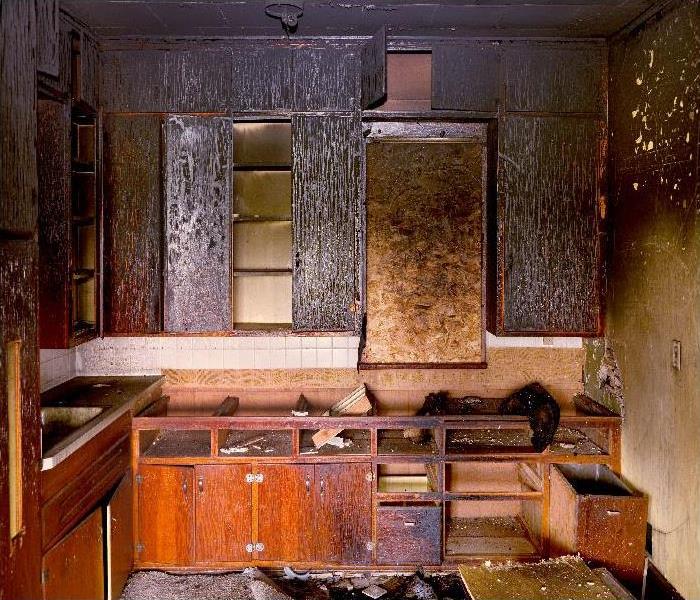 Call SERVPRO of North Everett / Lake Stevens / Monroe at (360) 243-8313 to help.
Call SERVPRO of North Everett / Lake Stevens / Monroe at (360) 243-8313 to help.
Professional Assistance Eases the Consequences of Fire Damage Incidents in Everett
Dealing with fire incidents is not something to look forward to. When it happens, the best actions to take after calling the fire department is to seek help from a professional restoration team because such a team has the skills and equipment to address all problems that are collectively referred to as fire damage.
Each fire damage incident in Everett is unique. However, some aspects are common in almost all loss situations. That they are common does not mean they are easy to address. They include:
• Aggregated Debris
• Moisture issues
• Noxious fumes and aerosols in the air
• Discolored surfaces
Fire affects all types of materials, including organic ones such as wood. It also affects inorganic materials such as plastic, glass, and even metals. In the aftermath of the fire, all the affected materials create piles of debris, which need removal from the property during restoration. Handling the debris can be dangerous because of the physical or chemical composition of the materials. For example, handling debris with shattered pieces of glass can lead to cuts. Our SERVPRO technicians use PPE, Personal Protection Equipment, including heavy-duty gloves and rubber boots, which ensure safe handling of debris after fire damage.
Although flames cause most of the damage when there is a fire incident, moisture issues also develop since the fire is doused with large quantities of water. At the initial stages, the water that reaches the fire is instantly heated, forming steam, which spreads moisture-related issues further from the source point. There is a need to extract any standing water, dry wet materials, and regulate humidity levels to prevent permanent damages. Our SERVPRO teams have a variety of equipment, including dehumidifiers and water extractors, to facilitate drying, saving materials.
Noxious fumes, particulate matter, and aerosols remain in the air after a fire. Such materials present problems if inhaled. It is also possible to absorb aerosols and vapors through skin contact. Our crews can deal with such materials safely because we have safety equipment such as full-body suits and respirators. We also use axial fans to push the particulate-filled air from the building.
Restoring fire damage can be a lengthy or tiresome process. Call SERVPRO of North Everett / Lake Stevens / Monroe at (360) 243-8313 to help. We’re Faster to Any Size Disaster.
For more about Everett click here.
We Put The Flames Of Worry Out In Lake Stevens After A Fire
2/20/2020 (Permalink)
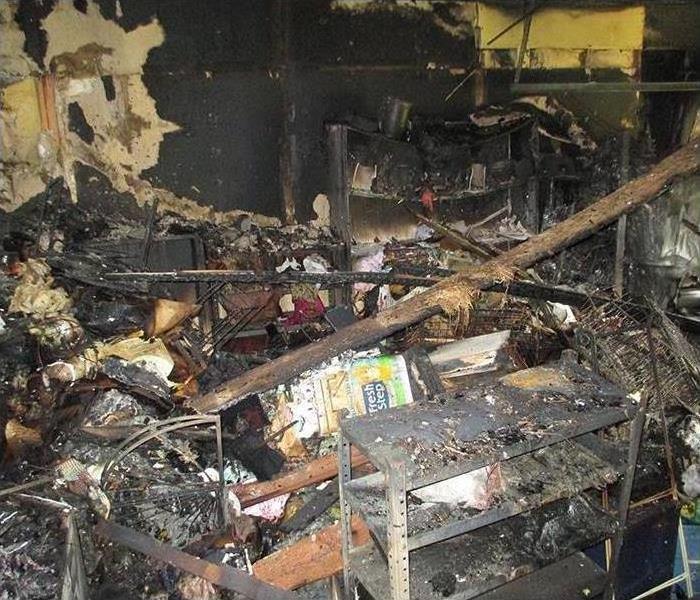 We worked hard to rebuild the structure and to get the family back in their home as quickly as possible after a fire disaster struck their property.
We worked hard to rebuild the structure and to get the family back in their home as quickly as possible after a fire disaster struck their property.
Mitigating Chimney Fire Damage in Lake Stevens
Fire damage costs hundreds of millions in property damages to homes each year, and even with adequate coverage, the stresses of cleanup, repairs, and replacement can be overwhelming for homeowners. After a fire occurs, it can take time to feel safe and comfortable in your home again. Fortunately, there is a team that can help restore confidence in the safety of your home.
If your Lake Stevens residence has suffered fire damage, certified restoration technicians from SERVPRO are ready to serve you with high-quality disaster cleanup services. Whether your home has suffered minor damage or you have experienced significant property damage and losses from fire, this team is well-equipped to preserve contents and preserve structures so that homeowners and their families can enjoy their beloved living spaces once more.
Signs of a Chimney Fire
While a large fire is hard to miss, the small fires may go unnoticed, which can create the conditions necessary for large fires to damage your home. Keep an eye out for these signs:
- Puffy creosote deposits in the chimney or on the roof
- A fire damaged or warped damper or chimney cap
- Signs of smoke or heat damage to the roof, as well as cracks or exterior damage to the chimney
- Smoke residues in mortar joints or tile liners
- Collapsed, cracked, or damaged flue tiles
Small fires can often be prevented by having a chimney sweep remove creosote deposits or repair minor damages to your chimney. If you have experienced a large fire, your chimney may require rebuilding.
SERVPRO's Residue Removal Tools
When taking care of the aftermath of a chimney fire, SERVPRO technicians have a variety of tools available to remove residues and preserve the safety of your home. Agitating tools like augers and brushes may be used to dislodge large deposits so they can be vacuumed and removed from the property. Because brick and masonry are porous surfaces, a variety of cleaning methods may be employed after dry cleaning, depending on whether there is a sealer on the stonework.
The first step in wet cleaning is testing the effectiveness of an alkaline cleaner with mild agitation. If that does not prove useful for all stains and residues, a stronger acidic cleaner may be utilized. For hard-to-remove charring on the masonry, gentle blast media like soda ash, ground corn cobs, or dry ice may be effective for removing these stains without changing the surface of the stone.
SERVPRO of North Everett / Lake Stevens / Monroe wants to provide you with service that is Faster to Any Size Disaster. Call (360) 243-8313 when you need disaster cleanup fast.
See more about Lake Stevens.
Could This be the Reason You Are NOT Having Success With Fire Damage Remediation in Everett?
11/16/2019 (Permalink)
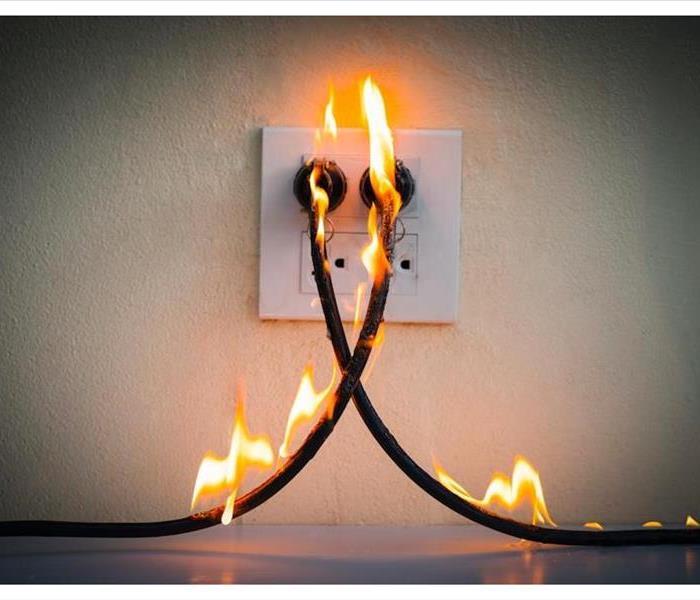 Regardless of how the fire in your home started, SERVPRO can help with the remediation process. Call right away for best results.
Regardless of how the fire in your home started, SERVPRO can help with the remediation process. Call right away for best results.
Special Care For Items Affected by Fire Damage In Your Everett Area Home
There are a variety of items that require special attention while performing fire restoration services in your Everett area home. Clothing, jewelry, toys, and even food all fall into a unique category that your technician must know how to handle to get it right.
Having fire damage on your Everett property takes a little finesse to overcome. Never settle for a restoration company lacking experience, equipment, or resources that you need to clean and restore your personal belongings to a quality preloss condition.
An apparent element of urgency remains present when dealing with smoke-damaged clothing. Since many items of clothing contain synthetic fibers, smoke particles, and smoke odor molecules can bond with fabrics quickly. Therefore, SERVPRO technicians ask for your help, splitting your garment restoration into three groups:
- Articles of clothing you need now.
- Any clothing you may need before restoration is complete.
- Seasonal clothing.
SERVPRO uses a combination of cleaning and deodorization techniques with multiple steps to achieve quality results when dealing with garment restoration. Technicians always remove clothing from metal hangers immediately to avoid oxidation. We also remove dry, loose residues from fabrics using compressed air; it helps evaporate odor molecules and blow-off smoke particles.
Your SERVPRO technicians spray garments with a blend of solvent-based odor counteractants and fragrances – such as Dry Mist Air Fresheners in the following scents: Linen (#284), Ocean Breeze (#285), Red Apple (#283), and Cinnamon (#341). All of which can counteract the effects of smoke odor and are also useful for deodorization of garment bags, carpet, and upholstery.
We also utilize fogging equipment, such as the Ultra Low Volume Fogger (ULV), or the Thermal Fogger, should cleaning or laundering prove insufficient. For more substantial residues and odors, technicians use fogging before, during, and after performing various cleaning procedures. There are both wet and dry fogging procedures. Fogging is a simple deodorization process that produces deodorizer particles small enough to penetrate surfaces, where odor particles emit odors.
Stop by or call SERVPRO of North Everett / Lake Stevens / Monroe for answers to any questions you may have or to schedule your home’s initial inspection today. We are here to provide quality cleanup and restoration services 24-hours a day, 7-days a week, year-round for your convenience. (360) 243-8313
Click here for more information about Everett.
FAQs: When Your Home Has Fire Damage
6/15/2019 (Permalink)
 Does your home have fire or smoke damage?
Does your home have fire or smoke damage?
What can I do to help prevent fire in my home
There are many safety precautions you can take to help prevent fire and smoke damage in your home. First, be sure to use caution when cooking in the kitchen. Be sure to stay alert and to be watchful while using the stove or oven. Be sure to have working smoke alarms in your home and to check them regularly. Be careful when using heating devices like space heaters and keep flammable objects several feet away. If you are a smoker, be mindful when smoking and disposing of cigarettes. When using candles don't leave them unattended and keep them away from flammable materials. Check your appliances and electronics for damaged or exposed wiring. It's a good idea to clean your dryer vents regularly. Also, be extra vigilant around the holidays for additional fire risks. And lastly, make sure you know how to use a fire extinguisher to help stop further fire damage if a fire does break out.
My home just had a fire, now what do I do?
Once the flames have abated, it's hard to know what to do next. Here are a few Dos and Don'ts to keep in mind after a fire:
- DO limit movement in the home.
- DO place towels on carpet traffic areas. Use dry, colorfast towels or old linens on rugs, upholstery and carpet traffic areas to limit damage.
- DO change HVAC filters. Change your filters, but leave the system off until a trained professional can check the system.
- DO cover HVAC intakes. Tape double layers of cheesecloth over air registers to stop particles of soot from getting in or out of your HVAC system.
- DO call in professionals to clean walls, carpet, upholstery and electronics.
• DON'T consume food and beverages that may have been stored near the fire. They may be contaminated. - DON'T turn on ceiling fixtures. If the ceiling is wet, wiring may be wet or damaged and can cause electrical shock.
- DON'T dry clean clothing. Improper cleaning may set smoke odors. Make sure you use a service that knows how to remove soot and smoke from clothing.
My home has smoke damage, do I have to replace everything I own?
Not necessarily. The first 48 hours after fire damage occurs can make the difference between restoring versus replacing damaged property and personal belongings. Rapid response and timely mitigation can help prevent fire damage from creating long-term problems to your belongings and home. Our team is trained in caring for both you, your property and your belongings. Our full line of fire cleanup and restoration services can help get your home back up and running quickly and help protect your property and belongings. We provide a variety of content restoration, electronic cleaning and document drying services. We will work hard to restore as much of your home and belongings as we can.
Can you get the smell of smoke out of my home?
Yes we can. After smoke or fire damage, ceilings, walls, woodwork, carpeting, and floors will often need a thorough cleaning. Our experienced technicians will pretest to determine the extent of damage, and then use the specific equipment and cleaning products required to clean the different types of surfaces found in your structure. We provide deodorization services that rid your home of offensive odors left by fire or smoke damage. We do not merely cover up lingering odors with a fragrance; we seek out the sources of the odor and remove them.
Can I clean up smoke damage myself?
It can be hard to clean up fire and smoke damage and to get rid of the smoke smell without the proper knowledge about different types of smoke and soot and how to clean each one. Dry smoke, wet smoke and protein residue all need to be treated differently and can be hard to remove fully. It helps to understand the way in which smoke behaves. At SERVPRO of North Everett/Lake Stevens/Monroe we have the training and equipment to clean and restore your fire and smoke damage to its preloss condition.
Summer Fire Safety
6/13/2019 (Permalink)
 Sparklers account for about a fourth of emergency room firework injuries.
Sparklers account for about a fourth of emergency room firework injuries.
Each year, families and friends across the country enjoy the summer months with barbecues, camping trips, or by cooling off in a pool or lake. To enjoy these occasions, it is important to keep safety top of mind to ensure you have fun in the sun.
Avoiding Injury and Home Damage
According to a recent study by the U.S. Consumer Product Safety Commission, nearly 11,900 Americans were injured by fireworks in 2015, with the majority happening in the month surrounding the Fourth of July. Another 8,700 are injured by charcoal/wood-burning and propane grill fires. A grill should always be supervised when in use. Keep children and pets a safe distance from the grilling area to prevent accidental burns or tipping of the grill.
Grills also cause an average of 8,900 home structure or outdoor fires. “These fires caused an annual average of 50 civilian injuries and $2 million in direct property damage,” according to the National Fire Protection Association (NFPA).
The summer season should be a time to make memories and enjoy the great outdoors. Don’t become a statistic. Take precautions to prevent these events from putting a damper on your summer months!
Staying Safe from Fire
Summer is a time to enjoy the great outdoors, but it is also important to keep safety in mind. Consider the following tips, provided by the National Fire Protection Association, to keep you and your family safe all summer long.
- When using a charcoal grill, only use starter fluids designed for barbecue grills; do not add fluid after coals have been lit.
- When using a gas grill, ensure the hose connection is tight; check hoses for leaks. Applying soapy water to the hoses will easily and safely reveal any leaks.
- When camping, always use a flame-retardant tent and set up camp far away from the campfire.
• Always build a campfire downwind from the tent area. Clear vegetation and dig a pit before building your fire. Extinguish the fire before going to sleep or leaving the campsite. - Store liquid fire starter (not gasoline) away from your tent and campfire and only use dry kindling to freshen a campfire.
Firework Safety
It’s firework season! According to the National Fire Protection Association (NFPA), an average of 18,500 fires are started every year by fireworks. This includes 1,300 structure fires, 300 vehicle fires, and 16,900 outside and other fires. “These fires caused an average of three deaths, 40 civilian injuries, and an average of $43 million in direct property damage,” says the NFPA.
Do you think sparklers are the safe way to go? Nope: they account for about a fourth of emergency room fireworks injuries.
Stay safe this summer by paying close attention to children at fireworks events, and avoiding the use of consumer fireworks.
Be sure to be safe with fire this summer, and to use caution. If fire does damage your home or business this summer, give us a call at 360-243-8313. SERVPRO of North Everett/Lake Stevens/Monroe will make it "Like it never even happened."
The Way Smoke Behaves
6/8/2019 (Permalink)
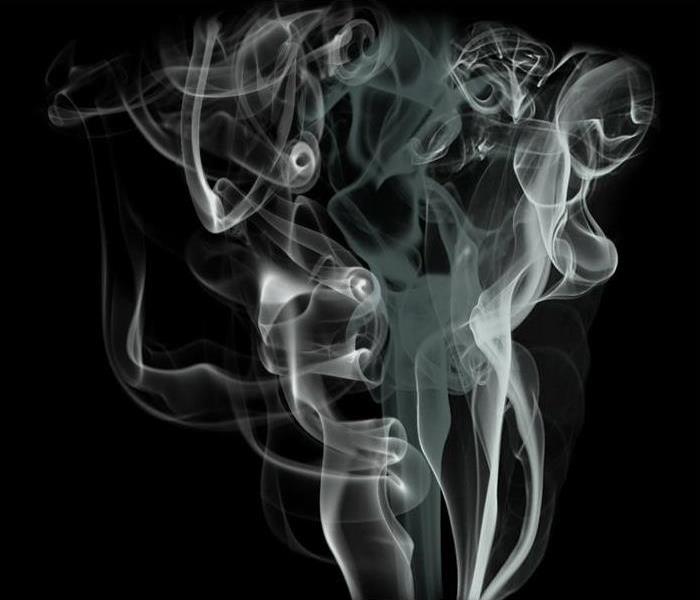 Damage following a fire can often be complicated due to the unique behavior of smoke.
Damage following a fire can often be complicated due to the unique behavior of smoke.
The damage to your property following a fire can often be complicated due to the unique behavior of smoke. There are two different types of smoke-wet and dry. As a result, there are different types of soot residue after a fire.
At SERVPRO of North Everett/Lake Stevens/Monroe our technicians are thoroughly trained in fire cleanup and restoration and know the different types of smoke and their behavior patterns. Knowing this information is vital to proper restoration. Before restoration begins, we will survey the loss to determine the extent of impact from fire, smoke, heat, and moisture on the building materials and contents. The soot will then be tested to determine which type of smoke damage occurred. Pretesting determines the proper cleaning method and allows us to focus on saving your precious items.
Our technicians know smoke can penetrate various cavities within the structure, causing hidden damage and odor. Their knowledge of building systems helps them investigate how far smoke damage may have spread. The following are additional facts you may not know about smoke.
- Hot smoke migrates to cooler areas and upper levels of a structure.
- Smoke flows around plumbing systems, seeping through the holes used by pipes to go from floor to floor.
- The type of smoke may greatly affect the restoration process.
Types of Smoke
Wet Smoke: Wet smoke is created from burning plastic and rubber. These materials smolder and burn at a low heat and create a sticky smeary smoke that has a pungent odor. Smoke webs created from this smoke are more difficult to clean.
Dry Smoke: Dry smoke occurs when paper and wood are burning. They are fast-burning and they burn at a high temperature. Dry smoke residue is usually powdery and dry and a little easier to wipe off materials, though it can settle into porous materials and leave a lasting odor of not cleaned properly.
Protein Fire Residue: Protein residue is left behind after the evaporation of organic material, like food. The residue is almost invisible. However, it discolors varnishes, paints, and finishes. It also gives off a strong, offensive odor.
Fuel Oil Soot: Fuel oil soot is caused by furnace puff backs. While “puff backs” can create havoc for homeowners, our technicians can, in most cases, restore the contents and structure quickly.
Other Types: Other types of damage, such as damage caused by tear gas, fingerprint powder, and fire extinguisher residue, require special care. We have the tools and knowledge to clean these special loss situations.
SERVPRO of North Everett/Lake Stevens/Monroe technicians are trained to handle even the toughest losses. If your home or business suffers fire or smoke damage, contact us at 360-243-8313 to help make it “Like it never even happened.”
Carbon Monoxide Safety
11/7/2018 (Permalink)
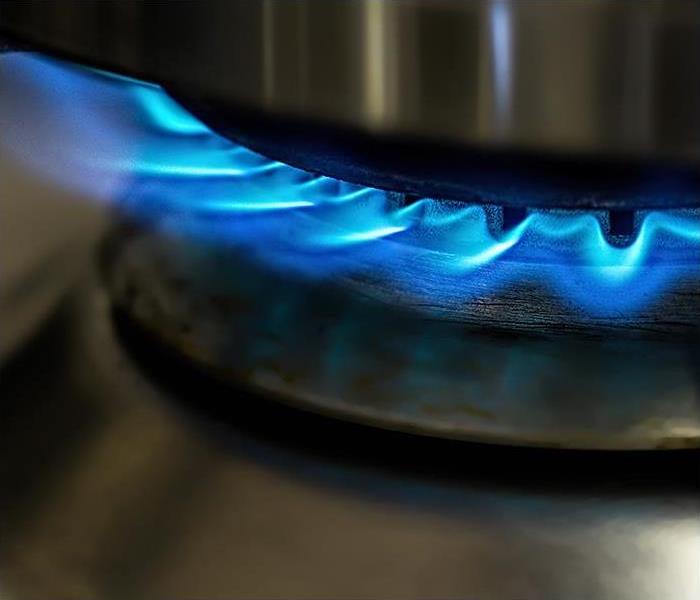 High levels of carbon monoxide (an invisible, odorless, colorless gas) can kill a person in minutes.
High levels of carbon monoxide (an invisible, odorless, colorless gas) can kill a person in minutes.
You can’t see or smell carbon monoxide, but at high levels, it can kill a person in minutes. Often called the silent killer, carbon monoxide, or CO, is an invisible, odorless, colorless gas, created when fuels, like gasoline, wood, coal, natural gas and propane burn incompletely.
According to the Center for Disease Control and Prevention (CDC), each year more than 400 Americans die from unintentional CO poisoning. It is estimated another 20,000 visit the emergency room, and more than 4,000 are hospitalized due to CO poisoning. All people and animals are at risk for CO poisoning, with some groups— including unborn babies, infants, and people with chronic heart disease, anemia, or respiratory problems— being more susceptible to the effects of carbon monoxide.
An excess of CO, leading to CO poisoning, can result from faulty furnaces or other heating appliances, portable generators, water heaters, clothes dryers, or idling cars left running in garages.
Taking some basic, precautionary steps can help eliminate the risk of carbon monoxide poisoning. Protect yourself by reviewing the following tips, provided by the United States Fire Administration.
- Have fuel-burning appliances, like oil and gas furnaces, gas or kerosene heaters, fireplaces, and wood stoves inspected by a trained professional every year.
- Open the damper for proper ventilation before using a fireplace. Never use your oven or stovetop to heat your home.
- Make sure all fuel-burning vented equipment is vented to the outside to avoid CO poisoning. Keep the venting for exhaust clear and unblocked.
- If you need to warm a vehicle, remove it from the garage immediately after starting it. Never run a vehicle or other fueled engine or motor indoors, even if garage doors are open. Make sure the exhaust pipe of a running vehicle is not blocked with snow, ice, or other materials.
- Make sure vents for the dryer, furnace, stove, and fireplace are clear of snow and other debris.
- Only use barbecue grills outside, away from all doors, windows, vents, and other building openings. Some grills can produce CO gas. Never use grills inside the home or the garage, even if the doors are open.
- Use portable generators outdoors in well-ventilated areas away from all doors, windows, vents, and other building openings to prevent exhaust fumes from entering the home.
The following are signs that you might be experiencing CO poisoning. Symptoms of CO poisoning include:
- Dull headache
- Weakness
- Dizziness
- Nausea or vomiting
- Shortness of breath
- Confusion
- Blurred vision
- Loss of consciousness
Take precautions to prevent CO poisoning in your home.
Source: mayoclinic.org and SERVPRO Industries Inc.
Preventing Kitchen Fires During the Holidays
10/31/2018 (Permalink)
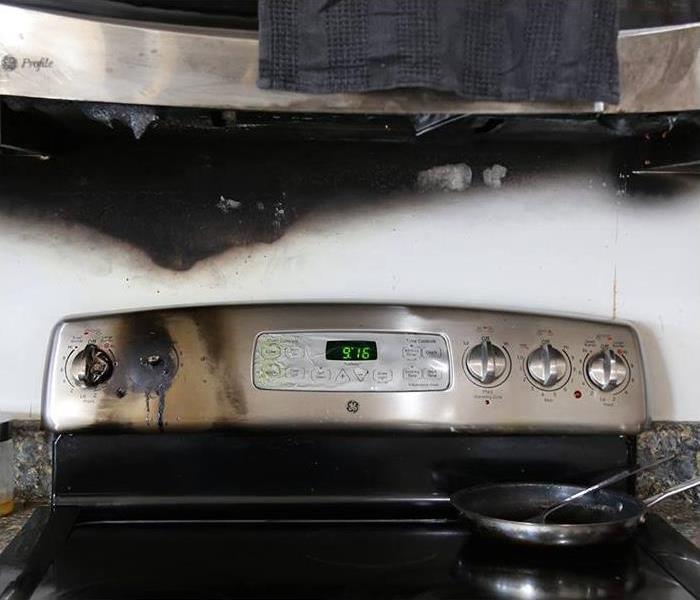 Follow our tips to help reduce the risk of fire in your kitchen this holiday season.
Follow our tips to help reduce the risk of fire in your kitchen this holiday season.
During the holidays, families gather together to celebrate various holidays, most of which involve delicious food and goodies. If you don’t practice safe cooking habits, your holiday could become hazardous very quickly. According to the National Fire Protection Association, cooking fires are the number one cause of home fires and home injuries. The leading cause of fires in the kitchen is unattended cooking. Follow these tips to help reduce the risk of fire in your kitchen this holiday season.
- Stay alert. If you are sleepy or have consumed alcohol don’t use the stove or stovetop.
- Stay in the kitchen while you are frying, grilling, boiling, or broiling food.
- If you are simmering, baking, or roasting food, check it regularly, remain in the kitchen while food is cooking, and use a timer to remind you that food is cooking.
- Keep anything that can catch fire—oven mitts, wooden utensils, food packaging, towels, or curtains—away from the stovetop.
If a cooking fire does occur, consider the following safety protocols to help keep you and your family safe.
- Just get out. When you leave, close the door behind you to help contain the fire.
- Call 9-1-1 or the local emergency number after you leave.
- For an oven fire, turn off the heat and keep the door closed.
- If you try to fight the fire, be sure others are getting out and you have a clear way out.
- Keep a lid nearby when you’re cooking to smother small grease fires. Smother the fire by sliding the lid over the pan and turn off the stovetop. Leave the pan covered until it is completely cooled.
SERVPRO of North Everett/ Lake Stevens/ Monroe wishes you a safe and happy holiday season. If your home does experience fire or smoke damage, give us call at 360-243-8313. We can make it “Like it never even happened.”
Source: National Fire Protection Association and SERVPRO Industries Inc.
Restoring Versus Replacing - Taking Care of Your Belongings After Fire
10/23/2018 (Permalink)
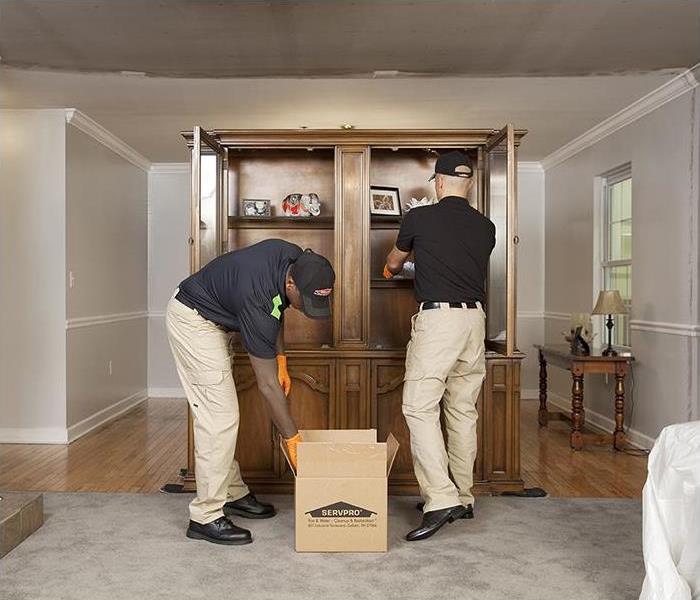 The first 48 hours after a fire can make the difference between restoring versus replacing damaged property and personal belongings.
The first 48 hours after a fire can make the difference between restoring versus replacing damaged property and personal belongings.
The first 48 hours after fire damage occurs can make the difference between restoring versus replacing damaged property and personal belongings. Rapid response and timely mitigation can help prevent fire damage from creating long-term problems.
SERVPRO of North Everett/Lake Stevens/Monroe understands that returning to normal is your primary concern. Our team is trained in caring for both you, your property and your belongings. By responding quickly with a full line of fire cleanup and restoration services, we can help you get your home or business back up and running quickly and help protect your property and belongings. We provide the following content restoration services to help reduce the number of items that need to be replaced after a fire affects your home.
Contents Restoration
SERVPRO of North Everett/Lake Stevens/Monroe specializes in restoring contents damaged by water, fire, or mold. Our expertise and restore versus replace mentality can help you save money while preserving precious keepsakes that can’t be replaced. We pretest your belongings to determine what items we can restore to pre-fire condition. We use several methods of cleaning your contents, including:
- Dry Cleaning - Used for cleaning light residues or to pre-clean prior to wet cleaning.
- Wet Cleaning - An effective cleaning method for removing moderate to heavy residues.
- Spray and Wipe - Effective for items that can’t withstand wet cleaning.
- Foam Cleaning - Used for upholstery fabrics that might shrink or bleed if wet cleaned.
- Abrasive Cleaning - Involves agitation of the surface being cleaned.
- Immersion Cleaning - Contents are dipped into a bath of the cleaning product.
Electronic Cleaning
Fire-damaged electronics can present a serious hazard. Do not attempt to turn on or operate any electrical device that you suspect has been damaged by fire. Smoke residues can contain acids that corrode metal surfaces. If the residues are not removed, corrosion causes electronic failure in the device. We will coordinate the restoration of your electronics, including:
- Television sets
- DVD/Blu-Ray players
- Computers
- And more
The key to restoring electronics is taking prompt action to prevent further damage. Electronics will be cleaned and inspected by a qualified electronics technician.
Document / Photograph Drying
When your valuable documents, including photographs, are damaged by water or fire, extreme caution should be taken to help ensure the fire damage does not destroy the document. Although some documents may not be restored to pre-fire damage condition, SERVPRO of North Everett/Lake Stevens/Monroe can save a great deal and help minimize additional damage.
Depending on the type of documents and the level of fire, smoke, or soot damage, we have five options for the restoration of documents:
- Air Drying
- Dehumidification
- Freezer Drying
- Vacuum Freeze Drying
- Vacuum Thermal Drying
We have earned the trust of the insurance industry by serving thousands of their policy holders and clients with respect and integrity. The more we restore, the less that needs to be replaced. This helps our clients save millions of dollars each year. That helps lower your insurance rates too!
If your home or business suffers a fire damage, contact SERVPRO of North Everett/Lake Stevens/Monroe at 360-243-8313 to help make it “Like it never even happened.”
Keep Fall Fire Free
9/22/2018 (Permalink)
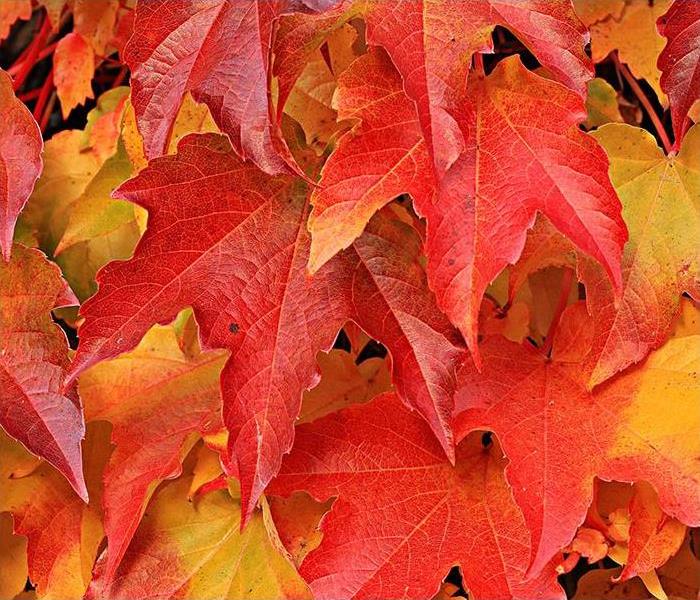 The fall season can bring many fire risks. Plan ahead this season to help ensure it is safe and fire-free.
The fall season can bring many fire risks. Plan ahead this season to help ensure it is safe and fire-free.
The fall season brings cooler temperatures, beautiful colors, and an abundance of outdoor activities. But the season also brings many fire risks. Plan ahead this season to help ensure it is safe and fire-free.
Decorations
Fall decorations, like dried flowers, leaves and cornstalks, are highly flammable. Keep these and other decorations away from open flames and heat sources, including light bulbs and heaters. Since these items are dry, they can ignite very easily and spread flames quickly.
Have A Plan
Be sure you have a fire preparedness plan and your family knows what to do if a fire breaks out in your home. Keep emergency exits clear of decorations so nothing blocks escape routes.
Protect your family by teaching your children to stay away from open flames. Be sure they know how to stop, drop, and roll if their clothing catches fire.
Ensure your smoke alarms are in working order and that you have an easily accessible fire extinguisher.
Make Halloween Safe
Remember safety first when choosing a Halloween costume. Consider avoiding billowing fabrics. If you are making your costume, choose material that won’t easily ignite if it comes into contact with heat or a flame.
It is safest to use a flashlight or battery-operated candle in a jack-o-lantern. Use extreme caution if using a real candle. Place lit pumpkins away from anything that can burn, and out of the way of doorsteps, walkways, and yards.
Be Careful in the Kitchen
With the holidays quickly approaching, your kitchen may be working on overdrive. While cooking, it can be easy to get distracted, especially if you have children. However, kitchens are a high-risk area for household fires, so it’s important to remain watchful.
Never leave food unattended while cooking, especially working with oil. Hot grease can splash and ignite. Keep flammable objects, like washcloths, potholders, and paper towels, away from the stovetop.
If a fire starts in your oven, keep the door closed. Turn it off and wait for the fire to extinguish.
Safely Use Your Fireplace
As the weather turns cold and brisk, fireplaces can bring a warm and inviting atmosphere to any home. However, if fireplaces are not properly cared for, they can lead to an increased fire and smoke risk. Make sure your fireplace is clean and well maintained and never left unattended when lit.
While you can take precautions to prevent fires this fall, sometimes accidents happen. If your home suffers any fire or smoke damage, call SERVPRO® of North Everett/ Lake Stevens/ Monroe.
After smoke or fire damages a home, it’s important to get it fixed as soon as possible. Call us at 360-243-8313, and we’ll assess the damage and make your home “Like it never even happened.”
Facts and information provided by National Fire Protection Association, nfpa.org and SERVPRO Industries Inc.
When You Have Fire Damage, Call SERVPRO of North Everett/ Lake Stevens/ Monroe
6/15/2018 (Permalink)
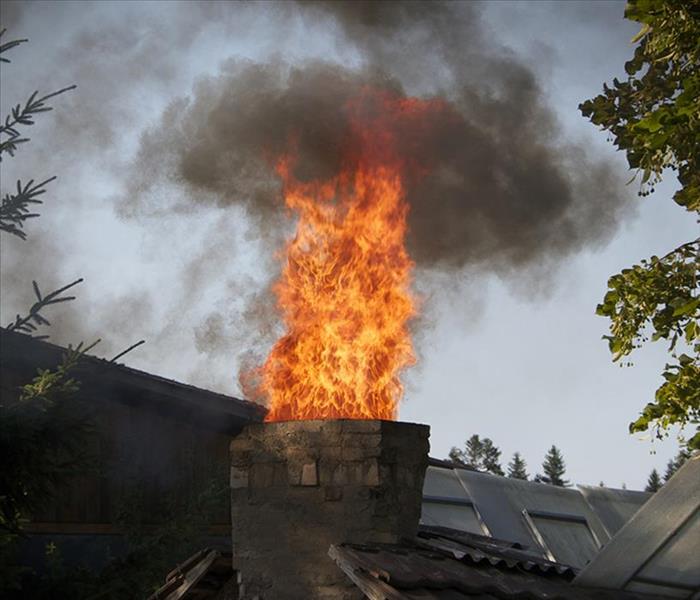 The faster our technicians arrive on-site to perform fire, smoke, and soot cleanup and restoration, the better the results.
The faster our technicians arrive on-site to perform fire, smoke, and soot cleanup and restoration, the better the results.
Mitigation requires quick action. The faster our technicians arrive on-site to perform fire, smoke, and soot cleanup and restoration, the better the results— including lower claim costs. Within four hours of loss notification, SERVPRO of North Everett/ Lake Stevens/ Monroe will be on-site to help ensure your fire damage is handled by utilizing the following services.
Structural Cleaning
After smoke or fire damage, ceilings, walls, woodwork, carpeting, and floors will often need a thorough cleaning. Our experienced technicians will pretest to determine the extent of damage, and then use the specific equipment and cleaning products required to clean and protect the different types of surfaces found in your structure.
Contents Cleaning
All of the restorable contents in affected areas will be professionally cleaned and deodorized. This includes area rugs, furniture, draperies, and upholstery. We can provide wet or dry cleaning services. Additionally, all the other restorable contents will be cleaned and deodorized to preloss condition. This includes electronics, art, wood furniture, kitchen items, clothing, bedding, and much more. Finally, our technicians can provide an inventory list of all “to be claimed” items for your insurance claim.
Deodorization
SERVPRO of North Everett/ Lake Stevens/ Monroe provides specialized services that rid your home or place of business of offensive odors left by fire or smoke damage. We do not merely cover up lingering odors with a fragrance; we seek out the sources of the odor and remove them.
SERVPRO of North Everett/ Lake Stevens/ Monroe is dedicated to restoring your property and getting your life back to normal. Contact us at 360-243-8313 before any further damage occurs to your property and belongings.
How to Use Your Fire Extinguisher
6/13/2018 (Permalink)
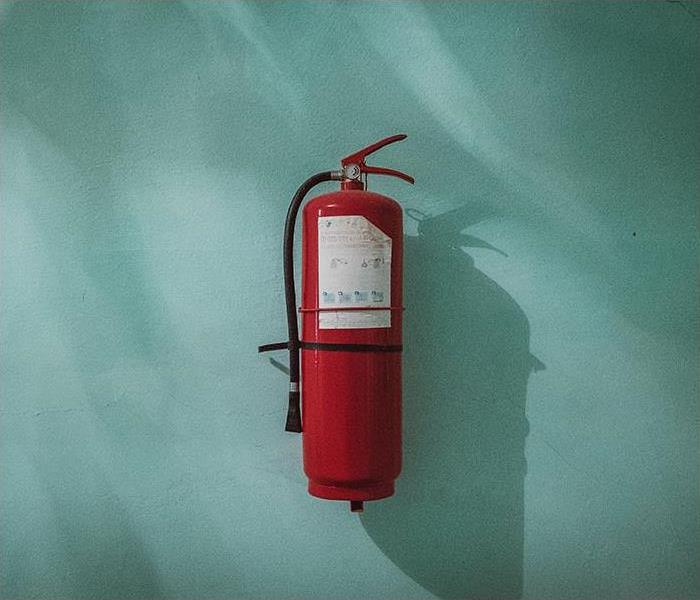 Do you know how to properly use your fire extinguisher?
Do you know how to properly use your fire extinguisher?
Portable fire extinguishers can be life and property saving tools when used correctly. In order to operate an extinguisher, the National Fire Protection Association (NFPA) suggests remembering the word PASS:
P: Pull the pin. Hold the nozzle pointing away from you and release the locking mechanism.
A: Aim low. Point the extinguisher at the base of the fire.
S: Squeeze the lever slowly and evenly.
S: Sweep the nozzle from side-to-side.
You can also check out this video to see how to best use your fire extinguisher.
Read the instructions on the fire extinguisher and become familiar with them before a fire breaks out. Keep your fire extinguisher somewhere you will remember and be able to access easily. Make sure your extinguisher is up to date and charged.
Remember, extinguishers do have limitations. It is also important to ensure you have the correct type of extinguisher for your facility. To find more information on choosing the appropriate class of extinguisher, please visit the NFPA website at nfpa.org.
It’s important to be prepared before disaster strikes. If ever you do need to use your fire extinguisher, have SERVPRO of North Everett/ Lake Stevens/ Monroe take care of the cleanup. We can clean up any fire or smoke damage as well as the mess created from the fire extinguisher. Give us a call at 360-243-8313 and we’ll make it “Like it never even happened.”
Why You Should Clean Your Dryer Vents
6/8/2018 (Permalink)
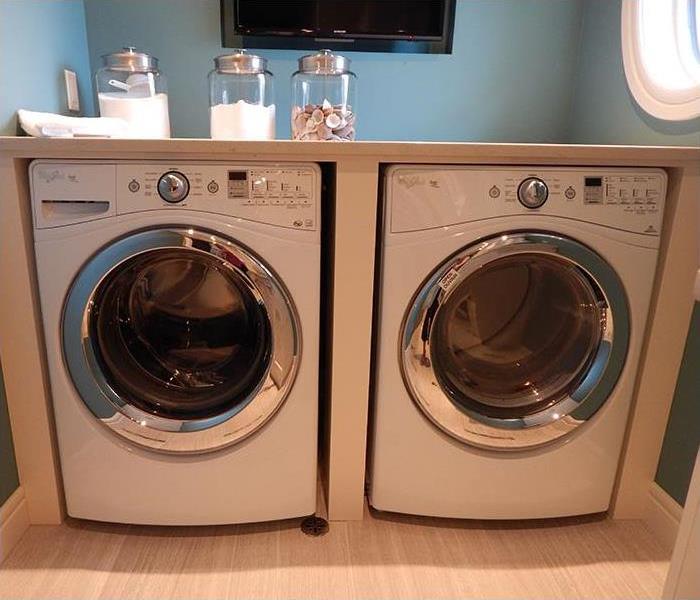 Be sure to clean your dryer vents to reduce the risk of dryer fires in your home.
Be sure to clean your dryer vents to reduce the risk of dryer fires in your home.
According to FEMA, failure to clean dryers and dryer vents causes 34% of home dryer fires. Home dryer fires cause $35 million in property loss and can even cause injury or death.
To reduce the risk of these fires happening in your home, clean dryer vents regularly. Every few months be sure to wash the lint filter with detergent to get rid of residue buildup that might be impeding airflow. Also clean the whole exhaust duct line yearly to reduce clogs and risk of fire.
Other tips for keeping your dryer vents clean from the National Fire Protection Agency include cleaning the lint filter before and after each load, and making sure the outdoor vent flap will open and is not restricted by snow, a bird’s nest, or other potential obstacles.
If you have a high efficiency dryer, look for easy-access panels and check inside for any additional lint buildup.
For more fire prevention tips, check out our other fire blog posts here.
The Dos and Don'ts After Fire Hits
1/24/2018 (Permalink)
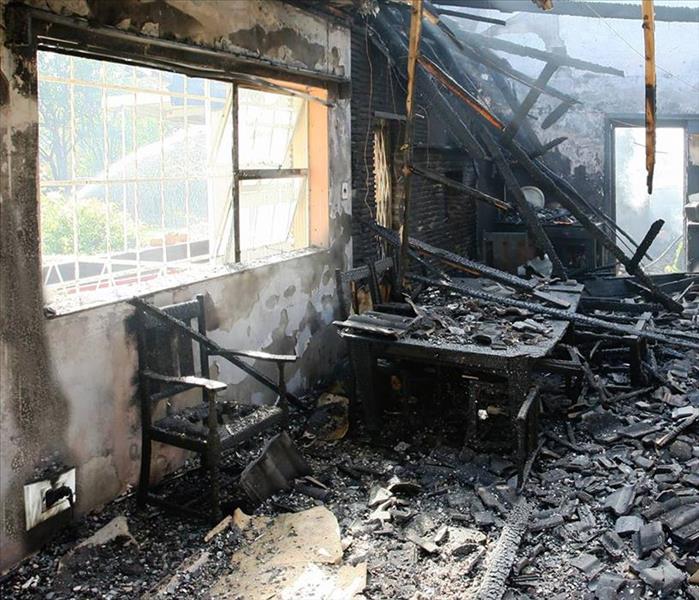 After fire ravages your home, it's hard to know what to do next.
After fire ravages your home, it's hard to know what to do next.
After fire ravages your home, fear, uncertainty, stress and doubt about the future of your property can be overwhelming. Once the flames have abated, it's hard to know what to do next.
Keep these Dos and Don'ts in mind if fire affects your home.
DO:
- Limit movement in the home. This helps prevent soot particles from being embedded into upholstery and carpets throughout your home.
- Keep hands clean. Soot on hands can further soil upholstery, walls and woodwork.
- Place towels on carpet traffic areas. Use dry, colorfast towels or old linens on rugs, upholstery and carpet traffic areas to limit damage.
- Empty freezer and refrigerator. If electricity is off, empty your freezer and refrigerator and prop doors open to help prevent odors.
- Wipe soot from chrome. Clean soot from chrome kitchen and bathroom faucets, trim and appliances, then apply a light coating of petroleum jelly to protect surfaces.
- Wash houseplants. Wipe down both sides of leaves on your houseplants.
- Change HVAC filters. Change your filters, but leave the system off until a trained professional can check the system.
- Cover HVAC intakes. Tape double layers of cheesecloth over air registers to stop particles of soot from getting in or out of your HVAC system.
DON'T:
- Wash any walls or painted surfaces. First contact SERVPRO of North Everett/ Lake Stevens/ Monroe.
- Attempt to shampoo carpet or upholstered furniture. Before cleaning carpets by yourself, call us at 360-243-8313.
- Clean any electrical appliances. TV sets, computers and other electronics that may have been stored close to fire, heat or water need to be looked at by an authorized repair service.
- Consume food and beverages. Food and beverages that may have been stored near the fire, heat or water, may be contaminated.
- Turn on ceiling fixtures. If the ceiling is wet, wiring may be wet or damaged and can cause electrical shock.
- Dry clean clothing. Improper cleaning may set smoke odors. Make sure you use a service that knows how to remove soot and smoke from clothing.
Fires are stressful, and you shouldn't have to clean up the mess yourself. SERVPRO of North Everett/ Lake Stevens/ Monroe is here to help you restore your home. With our industry approved training, rapid response, professionalism, cutting-edge technology and open communication, we strive to restore not only your home, but your peace of mind.
Call the fire damage cleanup and restoration professionals at 360-243-8313. SERVPRO of North Everett/ Lake Stevens/ Monroe has the technology and experience to make your fire damage “Like it never even happened.”
*Tips provided by SERVPRO® Industries, Inc.
Protect Your Family From Fire and Burns
1/10/2018 (Permalink)
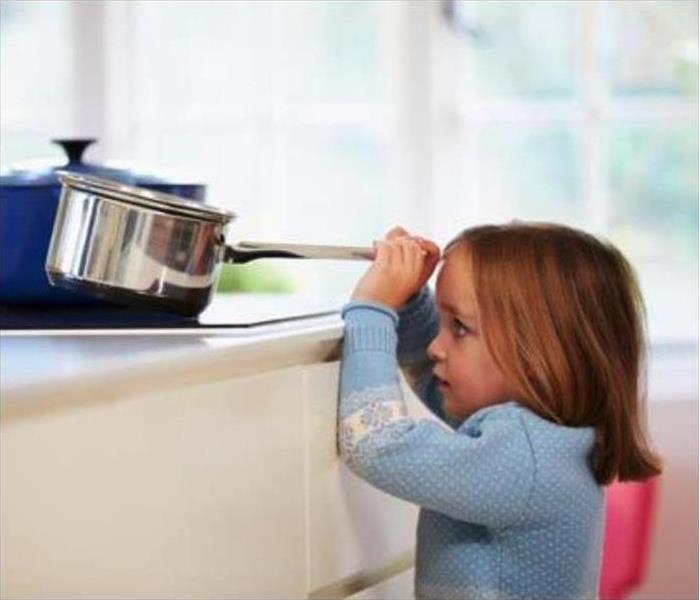 Be sure to place pots and pans on the back burner with handles turned away from the edge of the stove.
Be sure to place pots and pans on the back burner with handles turned away from the edge of the stove.
Burn injuries continue to be one of the leading causes of accidental death and injury in our county. Children, the elderly, and the disabled are particularly vulnerable to burn injuries, and almost one-third of all burn injuries occur in children. In 2014, there were over 3,000 deaths from fires and over 50,000 people were treated in hospitals for burn related injuries.
Though treatment for burn injuries has improved over the years, prevention is still the bets way to protect your home and family. Follow the tips below, provided by the American Burn Association, to help protect your family.
General Home Tips:
- Install smoke alarms in every sleeping room, outside each separate sleeping area, and on every level of the home, including the basement. Smoke alarms cut the risk of dying in a fire in half.
- If you leave the kitchen for even a short period of time, turn off the stove.
- If a pan of food catches fire, slide a lid over it and turn off the burner.
- Stir and test food cooked in the microwave before serving. Open lids away from your face, to prevent burns from hot steam.
Tips for Homes with Children
- Set water heater temperature to no higher than 120°F or just below the medium setting.
- Create a "no kid zone" in the kitchen around stoves, ovens and hot items.
- Keep hot drinks away from the edge of tables and counters.
- Place pots and pans on the back burner with handles turned away from the edge of the stove.
- Never hold an infant or child while cooking, drinking a hot liquid or carrying hot items.
- Keep matches and lighters high out of the reach and sight of children, in a locked cabinet.
- Closely supervise older children when using microwaves, or have them prepare non-hot food. Many burn injuries occur from children pulling hot foods and soups out of microwaves.
- Teach children to stop, drop, and roll if their clothes catch fire.
- Test the water before placing a child in the tub. Fill the tub or sink by running cool water first and then adding hot water. Seat the child facing away from the faucets.
If you or someone else sustains a burn injury be sure to:
- Cool the burn with cool (not cold) water to stop the burning process.
- Remove all clothing and jewelry from the injured area.
- Cover the area with a clean dry sheet or bandage.
- Seek medical attention.
If you would like to read more tips like these check out the American Burn Associations page here and the ABA National Scald Prevention Campaign page here.
*Statistics and tips provided by the American Burn Association
7 Tips for Safe Fireplace Use
11/30/2017 (Permalink)
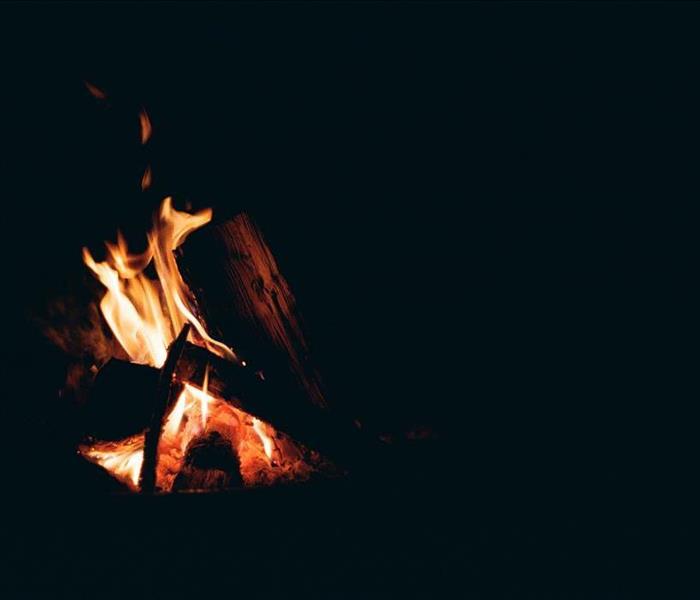 If fireplaces are not properly cared for they can increase the risk of fire and smoke in your home.
If fireplaces are not properly cared for they can increase the risk of fire and smoke in your home.
Fireplaces can bring a warm and inviting atmosphere to any home. However, if fireplaces are not properly cared for, they can lead to an increased fire and smoke risk. Use these tips to keep your home safe and warm through the cold months of the year.
- Keep it clean: Before starting a fire, clear out ash from previous fires. Make sure there is no debris in the fireplace or flammable items, like newspaper, in the surrounding area.
- Cover it up: Glass panes may block the fire, but they also get hot. Install a safety screen to protect your family, particularly children and pets, from accidental burns.
- Inspect the chimney: Look at both the interior and exterior of your chimney. Watch for bird nests or other natural debris, like leaves, branches, etc. Make sure there are no tree branches that are above or close to the chimney. Examine the bricks and mortar to ensure they are in good repair. Inspect the chimney cap for damage.
- Stick to checkups: Have a professional check out your fireplace annually. They can identify problems you might not notice on your own.
- Use the right wood and starters: Use dry, aged wood. Green and wet wood don’t burn as well and cause more smoke. Never use wood that is painted or shows signs of rotting, mold, or disease. Don’t use particle board, cardboard, garbage, plastics, or foam either. Only start fires using newspaper or dry kindling. Don’t try to jumpstart a fire using gasoline.
- Stay by the fire: Don’t leave fires unattended, and do not leave children alone with a lit fireplace. Make sure all fires are completely out and cooled before sleeping or leaving home.
- Check and open the flue and/or damper: Examine the flue for debris like bird nests or leaves around the same time you check your chimney. Make sure the flue or the damper, which are used to let out gases such as smoke, is open before starting a fire in the fireplace.
While you can take precautions to prevent problems, sometimes accidents happen. If your home suffers any fire or smoke damage, call SERVPRO® of North Everett/ Lake Stevens/ Monroe.
After smoke or fire damages a home, it’s important to get it fixed as soon as possible. Call us at 360-243-8313, and we’ll assess the damage and make your home “Like it never even happened.”
Holiday Fire Safety Tips
11/17/2017 (Permalink)
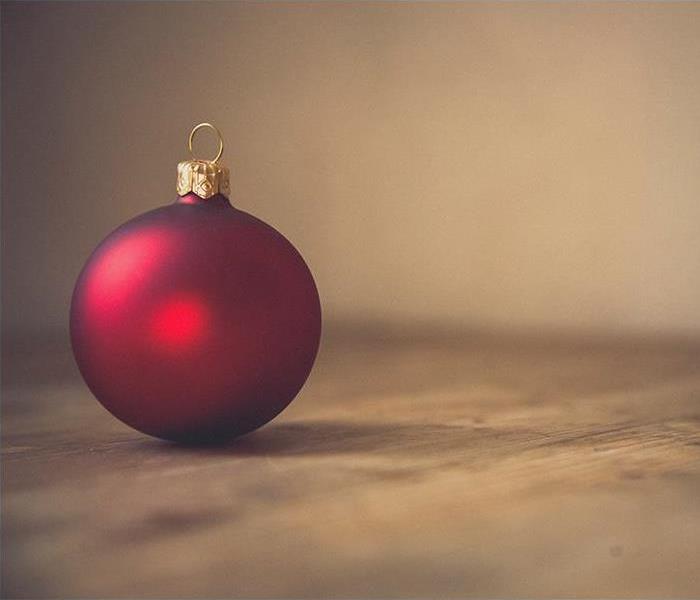 Learn how to keep your family and home safe from fire during the holidays.
Learn how to keep your family and home safe from fire during the holidays.
The holidays offer many opportunities for family and friends to gather, but they also come with an increased fire risk. With a little extra attention and care, you can help your family have a happy and safe holiday season.
Cooking
The holidays don’t feel like the holidays without delicious food. While cooking always presents potential fire hazards, home cooking fires always spike up around the holiday season.
When you have lots of cooks in the kitchen, it’s easy for things to get messy and confusing. However, a cluttered, chaotic kitchen is a hazardous kitchen. Make sure to keep flammable objects, like towels, packaging, and potholders, away from the stove. Communicate with everyone in the kitchen so you don’t leave the stovetop or oven on when it’s not in use. Wipe up spills quickly, and don’t let grease pile up around a burner.
If a deep-fried turkey is on the menu, make sure you fry it on a flat surface outside at least 10 feet away from the house.
Holiday Lights
While holiday lights can add a fun ambience to your home, it’s important to decorate safely. When you first open a package of new lights or crack open a box of previously-loved strands, take time to inspect each strand. If you find frayed or cracked wires or any broken sockets, return them or throw them away.
Don’t put more strands of lights on your tree than the packaging recommends. Overloading trees (and outlets) are a common cause of holiday fires. Unplug your holiday lights (and tree, if applicable) before you go to bed or leave the house.
If you want to hang lights outside, don’t use nails or staples as they can damage the wiring. Invest in quality hooks or hangers. Once the holidays are over, take down all outside lights. Small animals, like squirrels, may start chewing on the wires if you leave them up all year.
Menorahs
If your family uses menorahs for Hanukkah, you could consider using an electric one to cut down on fire hazards. If you prefer traditional candles, just be careful.
Keep the menorah at least three feet away from flammable items, and make sure you place a non-flammable surface, like an aluminum foil-lined tray, underneath the menorah to catch the melting wax.
Christmas Trees
Setting up the Christmas tree can mark the beginning of the Christmas holiday for many families. Unfortunately, if they are not properly set up and taken care of, they pose a large fire risk.
Keep the Christmas tree at least three feet away from fireplaces or heating elements in your home.
If you prefer a live Christmas tree, make sure to care for it properly. A dry tree can start to engulf a room in flames within a minute of ignition. Help reduce fire risks with the following guidelines:
- Buy a fresh tree. When you first choose the tree, the pine needles should be green and not easily broken.
- Cut off the bottom. When you get the tree home, cut two inches of the bottom to create a raw cut so the tree can soak in water.
- Water the tree daily. Well-watered trees are less likely to catch fire.
- Throw it out promptly. No matter how much you water it, your tree will dry out over time. Once the pine needles start to fall off and the tree starts to dry, it’s time to throw it out.
If you choose an artificial tree, consider flame-resistant or flame-retardant options.
Taking steps to prevent holiday fires can help reduce the risk, but there’s always a possibility of a fire. If your home suffers fire damage, SERVPRO® of North Everett/ Lake Stevens/ Monroe can help.
We have the knowledge and experience to properly treat fire and smoke damage to make your home “Like it never even happened.” We offer 24/7 emergency service; call us anytime at 360-243-8313.
How to Prevent Fires in Your Home
9/22/2017 (Permalink)
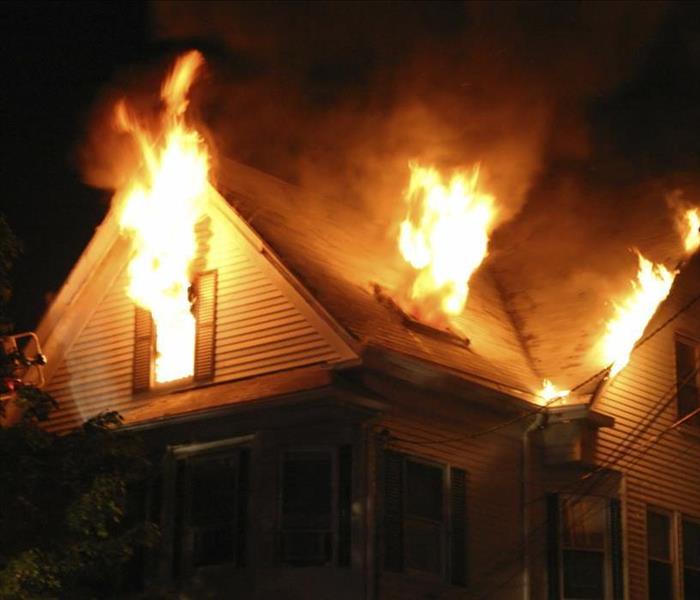 Seven people die every day from home fire. Read our tips to help prevent fires in your home.
Seven people die every day from home fire. Read our tips to help prevent fires in your home.
According to the American Red Cross, seven people die every day from a home fire. While the causes of these fires vary, there are steps you can take to make your home safer. Apply these tips to help prevent fires in your home.
Install and Maintain Smoke Alarms
While smoke alarms will not prevent a fire from starting, they can save lives and potentially minimize property damage. You should install a fire alarm inside and outside of each sleeping area as well as on every level, including the basement.
Test the alarms monthly, and replace the batteries every 6 months. Replace the entire alarm every 10 years.
Space Out Your Heating Devices
It might be tempting to sit right next to a space heater while curled up in a blanket on a cold day, but it’s important to keep all devices with a heating element at least three feet away from flammable objects.
When your space heaters, curling irons, or other devices are not in use, make sure to shut them off and unplug them.
Be a Watchful Cook
It’s easy to get distracted while cooking, especially if you have children. However, kitchens are a high-risk area for household fires, so it’s important to remain diligent.
- Never leave food unattended while cooking, especially working with oil. Hot grease can splash and ignite.
- Keep flammable objects, like washcloths, pot holders, and paper towels, away from the stovetop.
- Keep a fire extinguisher in your kitchen.
- Don’t splash water on a grease fire—smother it with a lid.
- Keep the door closed if a fire starts in the oven. Turn it off and wait for the fire to extinguish.
Smoke Responsibly
Smoking, if you aren’t careful, can create significant fire hazards in your home. To avoid fire hazards, it is best to smoke outside. When smoking, make sure the lit butts don’t fall beneath or near flammable materials such as furniture, debris, etc. Use a wide, sturdy ashtray and dispose of all butts and ashes properly.
While you always run a greater fire risk when you smoke indoors than out, it is particularly dangerous to smoke in bed. It’s too easy to fall asleep while lying in bed and start a fire.
Watch Your Candles
Candles can add a great ambience to your home, but if they aren’t watched carefully, they are a significant fire hazard. According to the NFPA, between 2009 and 2013 an average of 25 home candle fires were reported per day.
Minimize the fire risk with the following tips:
- Never leave a lit candle unattended.
- Blow out all candles before going to sleep, even for naps.
- Keep candles at least 12 inches away from flammable items.
- Make sure your candles are secure in their holders.
- Don’t place candles on furniture that can easily tip over.
Check Your Wiring and Appliances
Electrical fires can cause damage before you realize there is a problem. Regularly inspect your electrical appliances. Check to make sure they are still functioning smoothly and that the cords are in good repair.
The electrical wiring within your walls, if damaged, can also cause a fire. If your electricity shuts off regularly or trips fuses or breakers, you likely have a problem. Faulty or old wiring and outlets can be hazardous. If you aren’t an electrician, it’s best to call in a professional to work on the wiring.
These methods will help minimize potential fire risks in your home; however, accidents still happen. If fire damages your home, call SERVPRO® of North Everett/ Lake Stevens/ Monroe.
We offer 24/7 emergency service, and we can restore your home “Like it never even happened.” To start the restoration process, call us at 360-243-8313.
Smoke Alarm FAQs
6/23/2017 (Permalink)
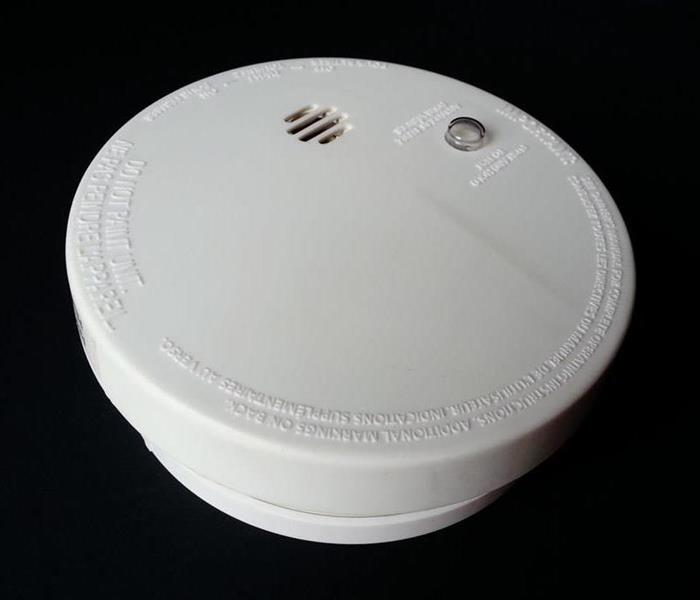 Properly installed and regularly tested smoke alarms can save your family in the event of an emergency.
Properly installed and regularly tested smoke alarms can save your family in the event of an emergency.
The National Fire Protection Association (NFPA) claims that three out of every five fire deaths occur in a home without working smoke alarms. Properly installed and regularly tested smoke alarms can save your family in the event of an emergency. Have you ever wondered how often you need to replace and test your alarms? Use this guide to help keep your home and family safe.
Where Should I Place Smoke Alarms?
Because homes are filled with more manmade materials than in years past, fires can move more quickly through homes. It’s important to install enough alarms to give your family as much time as possible to get to safety in the event of a fire.
At a minimum, you should install smoke alarms on every level of your home (including attics, basements, and garages), in every sleeping area, and outside every sleeping area. Other important locations include the top and bottom of stairways and utility rooms.
How Often Should I Test Smoke Alarms?
Test all your smoke alarms monthly. Alarms are loud, and the noise will be less likely to scare children if they know when it’s going to happen. Make it a family event so your children will understand the importance of testing smoke alarms.
Make sure to dust or vacuum the alarm when you test it to keep it in top-working condition.
When you’re ready to test the alarm, strategically place a family member at the furthest point in the house away from the alarm you are testing. You want to make sure people can hear the alarm from anywhere.
Check the manufacturer’s instructions for testing the alarm, but most detectors have a button you can use for testing. Simply press and hold the alarm until you hear it go off. If you don’t hear an alarm, or if it sounds muted and weak, it’s time to replace the batteries.
How Often Should I Replace Batteries in Smoke Alarms?
You should replace batteries every six months even if the alarm passes the test. However, some circumstances warrant more frequent replacements.
- If your alarm frequently goes off because of smoke while cooking, the batteries will drain faster.
- If the detector gives out frequent false alarms or short beeps without being touched, the batteries likely need to be replaced.
After replacing the batteries, don’t forget to test the alarm to make sure it’s working.
Remember—under no circumstances should you take out and use the batteries for other devices in the home, like remote controls. Even if you’re sure you’ll remember to replace the batteries later, you run the risk of forgetting and putting your home in danger.
When Should I Replace Smoke Alarms?
The NFPA recommends replacing smoke alarms 10 years after the date of manufacture on the back of the alarm even if the alarm is still working. However, if an alarm does not respond to a test after installing fresh batteries, replace it sooner.
Per the American Red Cross, if all homes had working smoke alarms, around 890 lives could be saved every year. Smoke alarms can also help limit the damage done to homes by fires. If your home experiences a fire, please reach out to SERVPRO® of North Everett/ Lake Stevens/ Monroe.
We have the knowledge and experience necessary to determine the extent of fire and smoke damage and repair your home so it is “Like it never even happened.” It’s important to start mitigating the damage as soon as possible after a fire, so we offer 24/7 emergency service. Give us a call anytime at 360-243-8313.
Identifying Different Types of Smoke & Soot Damage
6/23/2017 (Permalink)
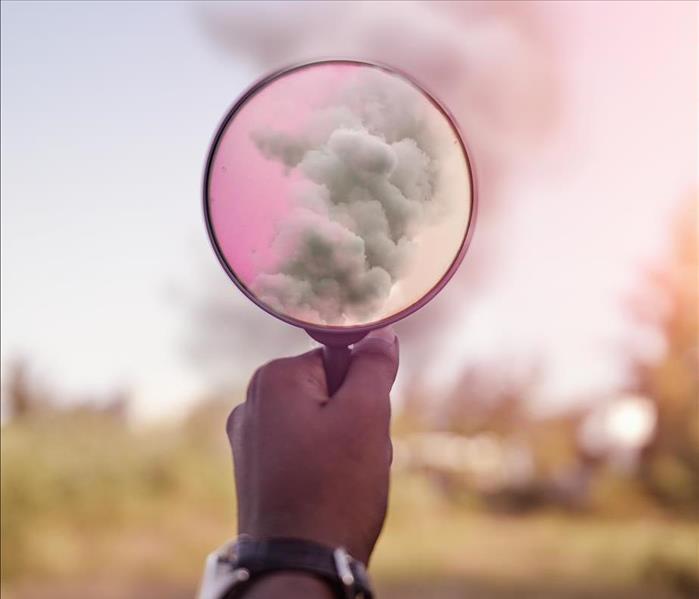 Smoke and soot can cause both visible and hidden damage beyond the original fire damage.
Smoke and soot can cause both visible and hidden damage beyond the original fire damage.
Fire damage is not limited to damage done by the actual flames. Smoke and soot can cause both visible and hidden damage far beyond the area of the original fire.
Different types of smoke damage require different cleaning approaches. At SERVPRO® of North Everett/ Lake Stevens/ Monroe, we have the experience and equipment necessary to identify and remove each soot residue type.
Dry Smoke
Dry smoke residue is usually powdery and dry. High-heat, fast-burning fires fueled by wood and paper typically produce dry smoke. The fine powder is often simpler to clean since it is easy to wipe off. However, it can fall into cracks and porous surfaces, and while the soot may be hidden from view, the smell will remain.
Wet Smoke
Wet smoke damage typically comes from low-heat, slow-burning fires. This thick, black smoke leaves behind an often thick and sticky residue with a strong odor. Wet smoke residue smears easily, which often makes cleanup more difficult. Both burning plastic and rubber produce wet smoke.
Protein Residue
Protein residue is left behind after the evaporation of organic material, like food. The residue is almost invisible. However, it discolors varnishes, paints, and finishes. It also gives off a strong, offensive odor.
Because, unlike wet and dry smoke damage, this residue is virtually invisible, an untrained eye might underestimate the efforts needed for restoration. Homeowners might get frustrated with the pungent smell since they can’t see the source.
Smoke damage can be difficult and extensive. Smoke and soot can permeate any porous surface like fabric, brick, wood, and drywall. HVAC systems can also carry smoke throughout your house.
Depending on the type of smoke damage and the surface that is affected, various cleaning techniques can be used to restore surfaces to their preloss condition. These techniques include:
- Dry Sponging
- Wet Cleaning
- High Efficiency Particulate Air-filtration (HEPA) Vacuuming
- Thermal Fogging
Fortunately, at SERVPRO® of North Everett/ Lake Stevens/ Monroe our technicians are prepared to find and treat smoke damage with our comprehensive inspections and services. We can make your home “Like it never even happened.”
Call us 24/7 at 360-243-8313.
Keep Your Family Safe with a Fire Preparedness Plan
6/23/2017 (Permalink)
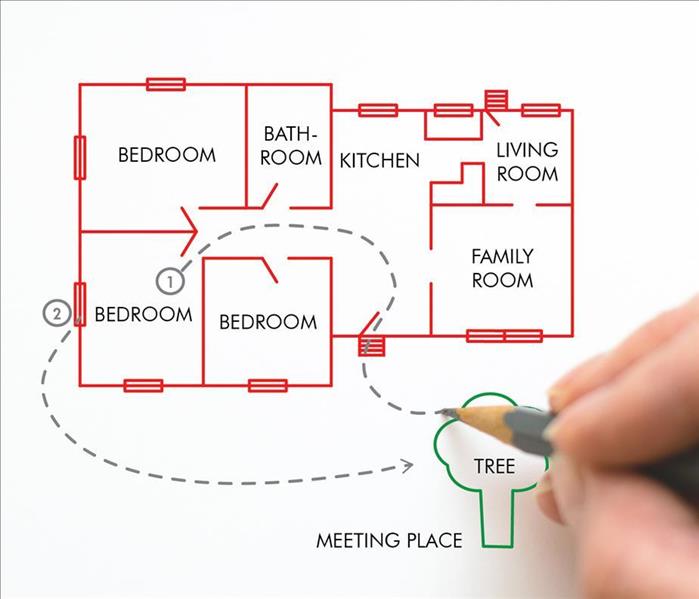 Does your family have a Fire Preparedness Plan? Be sure to set aside some time to create a plan with your family.
Does your family have a Fire Preparedness Plan? Be sure to set aside some time to create a plan with your family.
Would your family be prepared if a fire broke out in your home? If not, now is the best time to plan. Family fire preparedness plans save lives every year. Set aside time to gather as a household and create a plan unique to your home.
Identify Exits
Identify two different ways to safely exit each room if a fire broke out, such as doors and windows. Teach each member of your household how to safely exit through windows, especially on non-ground level floors.
If you have members of the family who are unable to move themselves—such as babies, elderly relatives, or any individuals with disabilities—make sure to go over who can help them escape as well.
Choose a Meeting Place
Pick a spot outside of your home that’s a safe distance away to serve as your family’s emergency meeting place. Familiar locations like a mailbox, lamppost, nearby park, or a neighbor’s house are great. Walk out with your family to establish it as your official meeting place.
Make sure every family member knows that once they exit the house, they should go straight to the meeting place and not go back inside for any reason.
Teach family members to call the fire department only after they’ve safely arrived at the meeting place.
Draw it Out
Draw the layout of your home on a piece of paper. Mark the different exits and exit paths from every room. Don’t forget to include the family meeting place. Keep your plan somewhere accessible. When you have overnight guests, let them know about your safety plan.
Practice Safety
Once everyone knows the different paths they can take to exit the home and where to go, it’s important to know how to navigate through a burning house as safely as possible.
Teach family members the following safety tips:
- Choose the escape route with the least amount of heat and smoke, but be prepared for less than ideal circumstances.
- Before opening a door, lightly touch the doorknob. If it’s hot, the fire is close, and it’s likely better to choose another exit if possible.
- If it’s necessary to travel through a room or hallway with a lot of smoke, stay low and crawl as necessary! Smoke rises.
In addition to these tips, make sure your house number is easily seen from the road. Firefighters need to be able to quickly find your home.
Plan Realistic Drills
Schedule practice drills at least two times a year. This is a great time to replace the batteries in your smoke alarms, which should be switched twice annually and tested monthly.
If you have young children, warn them about nighttime drills. The point of the drill is to prepare them, not to scare them. If the fire alarm fails to wake up members of your family, assign someone to wake them up in a real emergency.
Practice the safety tips from above as part of the drill.
Nothing is more important than your family’s safety. Things, and even homes, can be fixed or replaced, but your family is irreplaceable. Your family fire preparedness plan can save lives.
If fire or smoke damages your home, give SERVPRO® of North Everett/ Lake Stevens/ Monroe a call at 360-243-8313. With our restoration knowledge and training, we can make it “Like it never even happened.”
Preparing for Wildfires
6/16/2017 (Permalink)
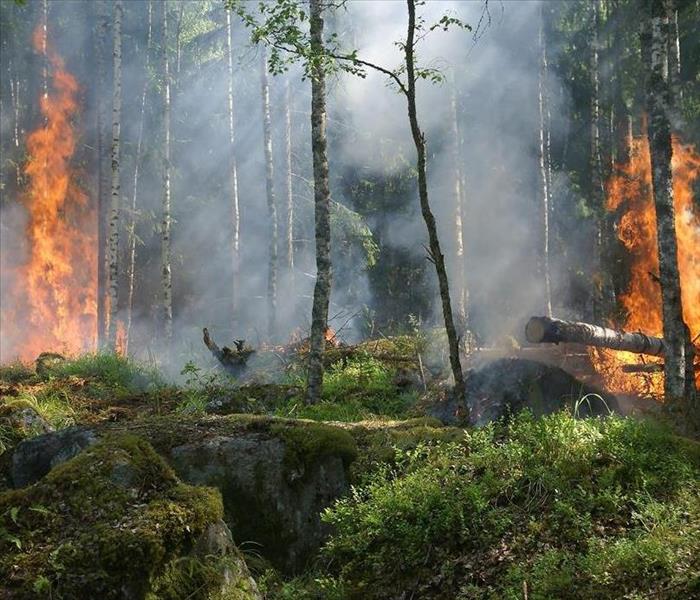 Learn how to protect and prepare your home, family and business for wildfires.
Learn how to protect and prepare your home, family and business for wildfires.
Though this spring has been pretty wet, fires can still pose a risk. Wildfires in particular can cause vast amounts of damage. Wildfires are more common in drier areas, like Eastern Washington, but it is still important to be prepared in case wildfires do occur in our area, especially as we reach the hotter summer months.
Prepare Yourself
It's important to be prepared for any disaster that might occur. Read through these tips from FEMA to learn how to prepare your family, home and business for wildfires.
- Get an Emergency Supply Kit, which includes items like non-perishable food, water, a battery powered or hand-crank radio, extra flashlights and batteries. You may want to prepare a portable kit and keep it in your car.
- Make a Family Emergency Plan. Your family may not be together when disaster strikes, so it is important to know how you will contact one another, how you will get back together and what you will do in case of an emergency.
- Protect your property from wildfires by designing and landscaping with wildfire safety in mind.
- Learn about the emergency plans that have been established in your area by your state and local government. In any emergency, always listen to the instructions given by local emergency management officials.
- Ask your local SERVPRO® Franchise Professional about starting a Disaster Recovery Plan for your business.
If Wildfires Do Threaten
If wildfires do occur near you, follow these tips from FEMA:
- Wear protective clothing.
- Take your Emergency Supply Kit.
- Lock your home or business.
- Tell someone when you leave and where you are going.
- Choose a route away from fire hazards.
- Close windows, vents, doors, blinds or noncombustible window coverings.
- Shut off all utilities, if possible.
- Open fireplace damper. Close fireplace screens.
- Move flammable furniture into the center of the home.
- Turn on a light in each room to increase the visibility of your home.
- Seal attic and ground vents with precut noncombustible coverings.
- Turn off propane tanks.
- Place combustible patio furniture inside.
- Connect the garden hose to outside taps.
- Set up a portable gasoline-powered pump.
- Place lawn sprinklers on the roof and near above ground fuel tanks.
- Wet or remove shrubs within 15 feet of the home or business.
- Gather fire tools.
Wildfires can strike almost anywhere and can cause more than just the damage that you see. If fire or smoke damages your property, it can throw your life into chaos. SERVPRO® of North Everett/Lake Stevens/Monroe is dedicated to restoring your damaged property back to its preloss condition and helping your life get back to normal.
If fire or smoke damages your home or business, give us a call at 360-243-8313. We’ll make it “Like it never even happened.”
*Tips provided by FEMA and SERVPRO® Industries, Inc.
Winter Heating Hazards
1/23/2017 (Permalink)
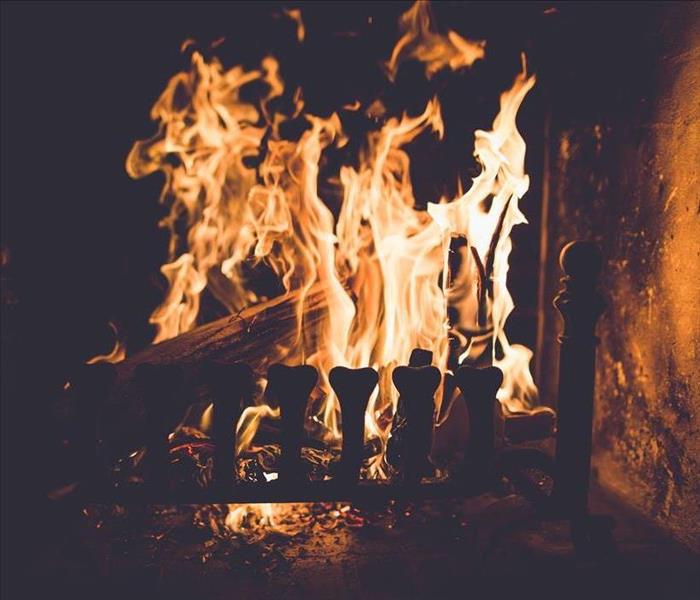 50% of all residential heating-related fires are reported during the months of December, January and February.
50% of all residential heating-related fires are reported during the months of December, January and February.
Did you know 50% of all residential heating-related fires are reported during the months of December, January and February? During the winter, days are short and temperatures are low. In an effort to keep our homes and workplaces cozy, many people use alternative heat sources like fireplaces, portable space heaters, and wood burning stoves. Did you know heating equipment is a leading cause of home fire deaths? According to the National Fire Protection Association, heating equipment fires cause an estimated $1 billion in direct property damage annually.
Keep the following safety tips in mind to help reduce your risk of a heating-related fire:
- Keep anything flammable at least three feet away from heating equipment, like the furnace, fireplace, wood stove or a portable space heater. Have a three-foot “kid-free zone” around open fires and space heaters.
- Make sure the fireplace has a sturdy screen to stop sparks from flying into the room.
- Remember to turn portable heaters off when leaving the room or going to bed.
- Have heating equipment and chimneys cleaned and inspected every year by a qualified professional.
- Test smoke alarms monthly.
If your property does suffer fire damage, contact SERVPRO® of North Everett/ Lake Stevens/ Monroe at 360-243-8313 to help make it “Like it never even happened.”
*Statistics and tips provided by the National Fire Prevention Association and SERVPRO® Industries, Inc.
 A fire in your home can cause a lot of damage, especially if it's not dealt with properly. Contact SERVPRO 24/7 for certified technicians.
A fire in your home can cause a lot of damage, especially if it's not dealt with properly. Contact SERVPRO 24/7 for certified technicians.






 24/7 Emergency Service
24/7 Emergency Service









































